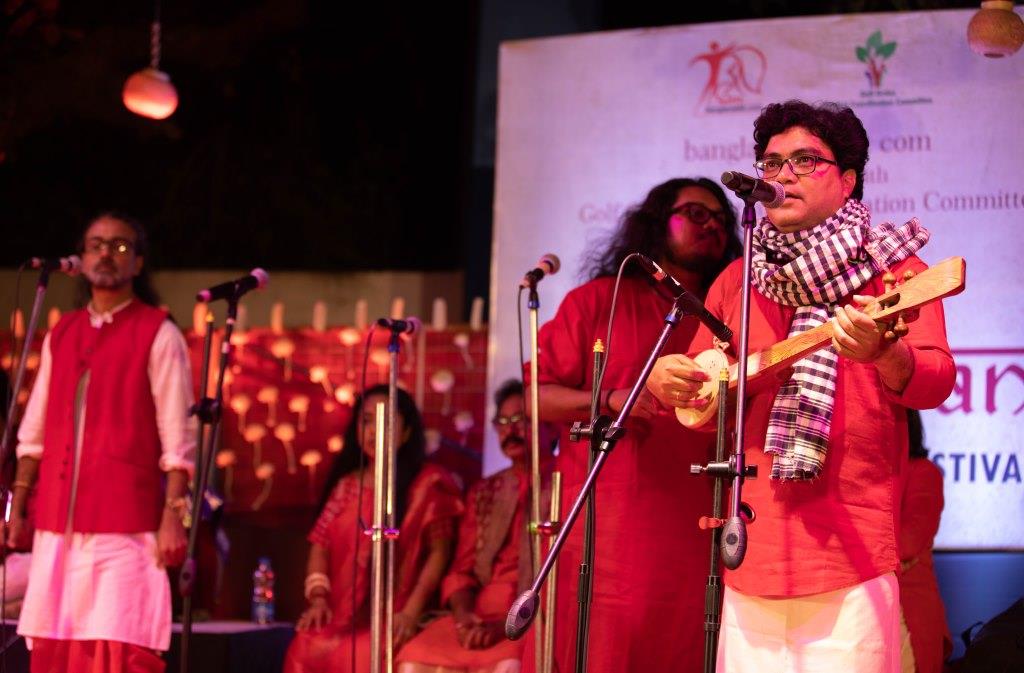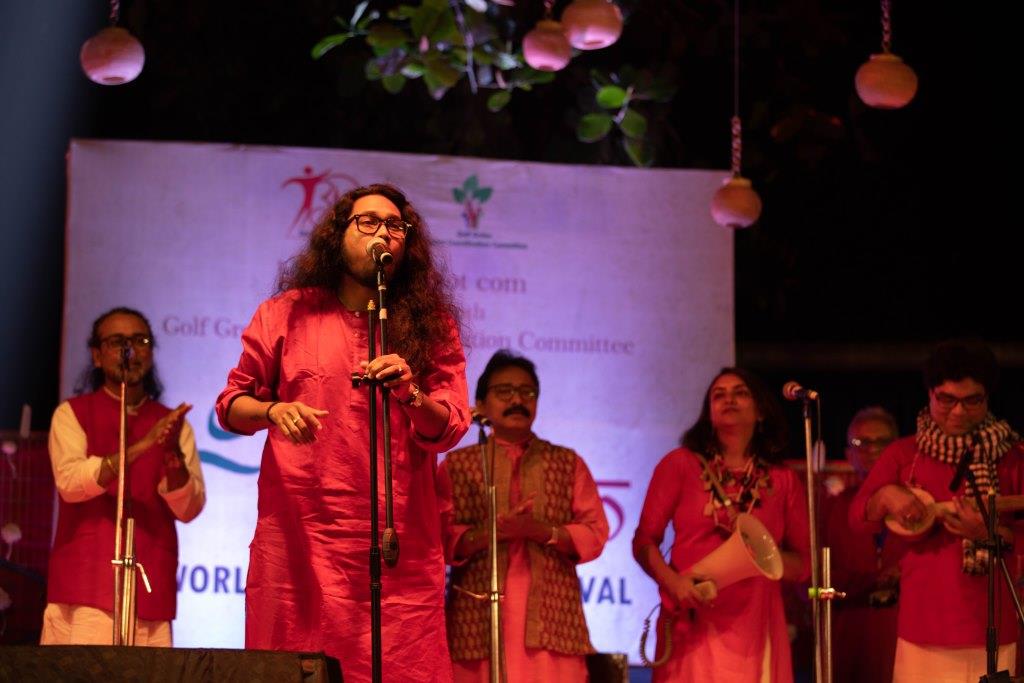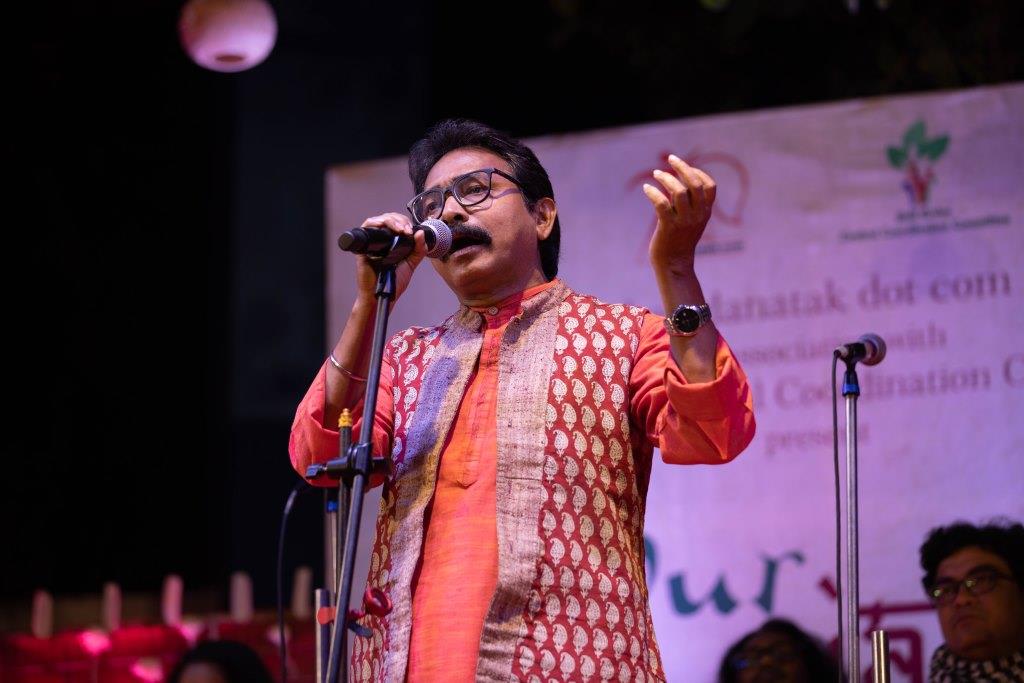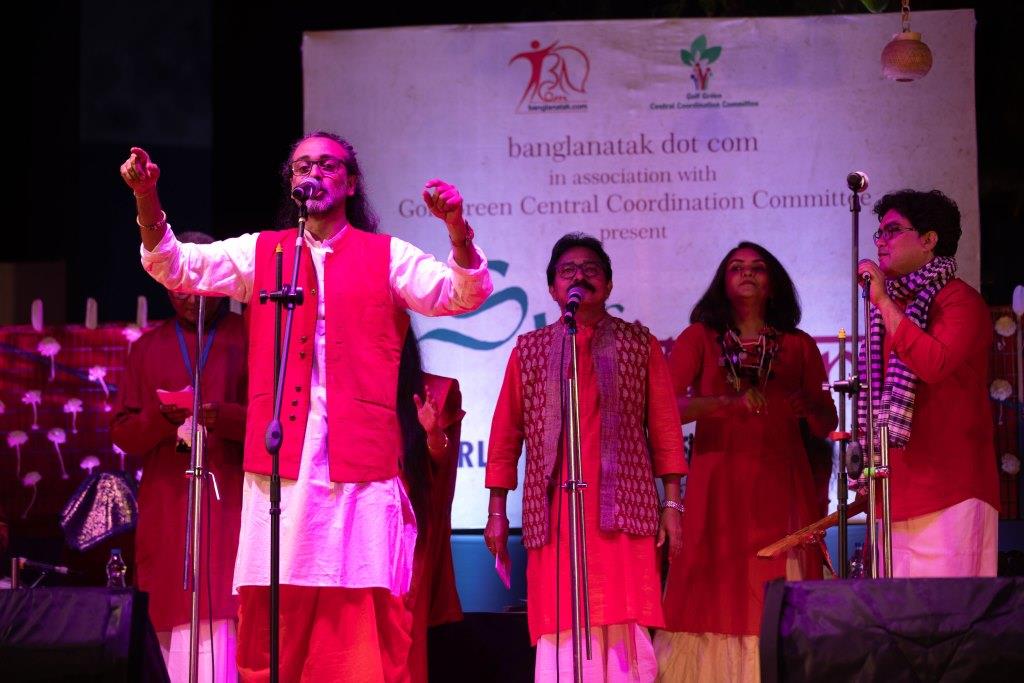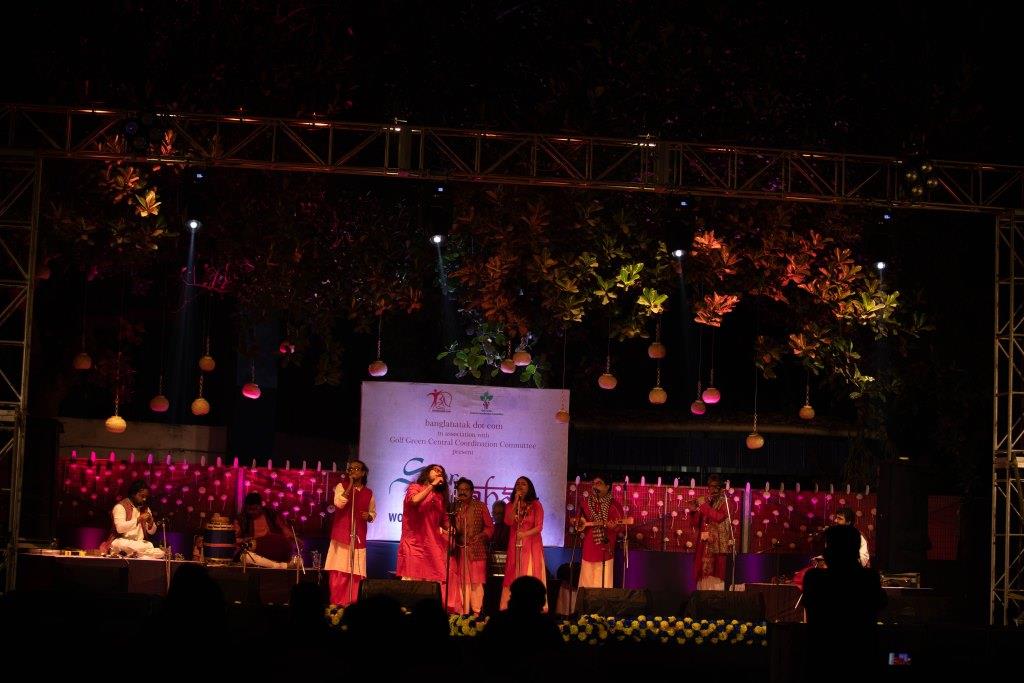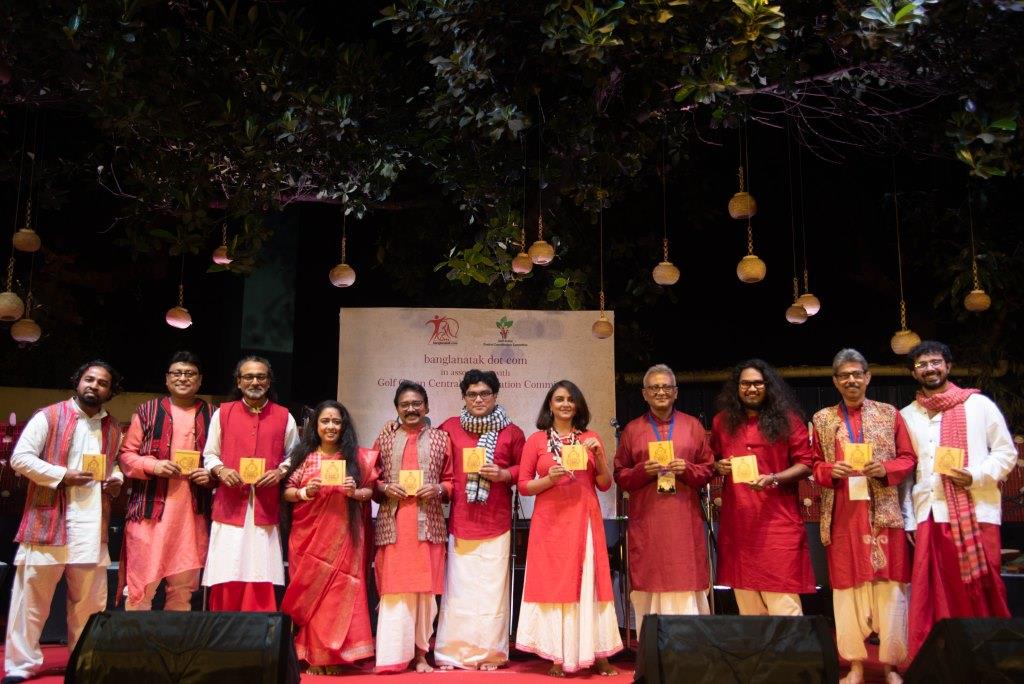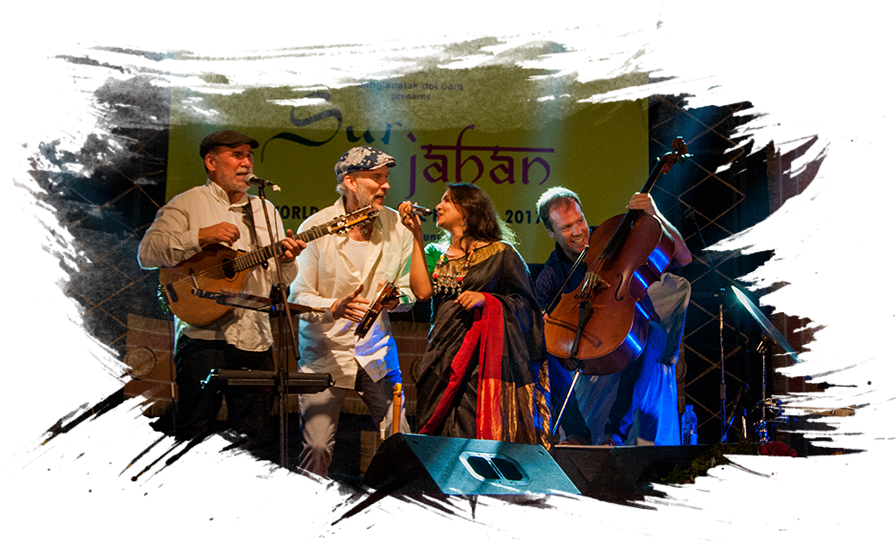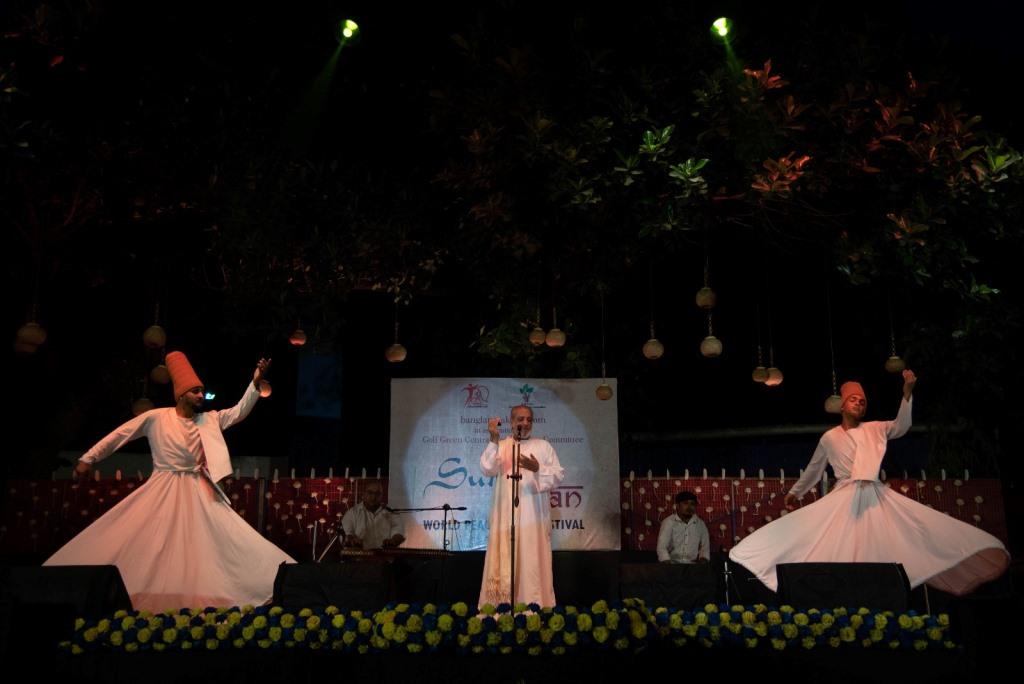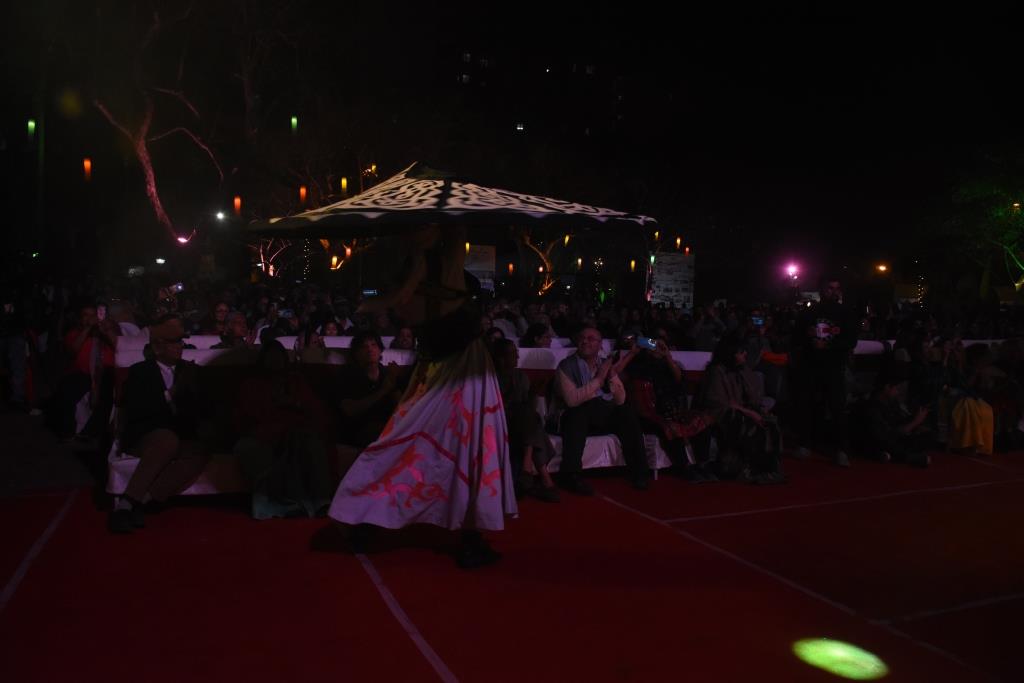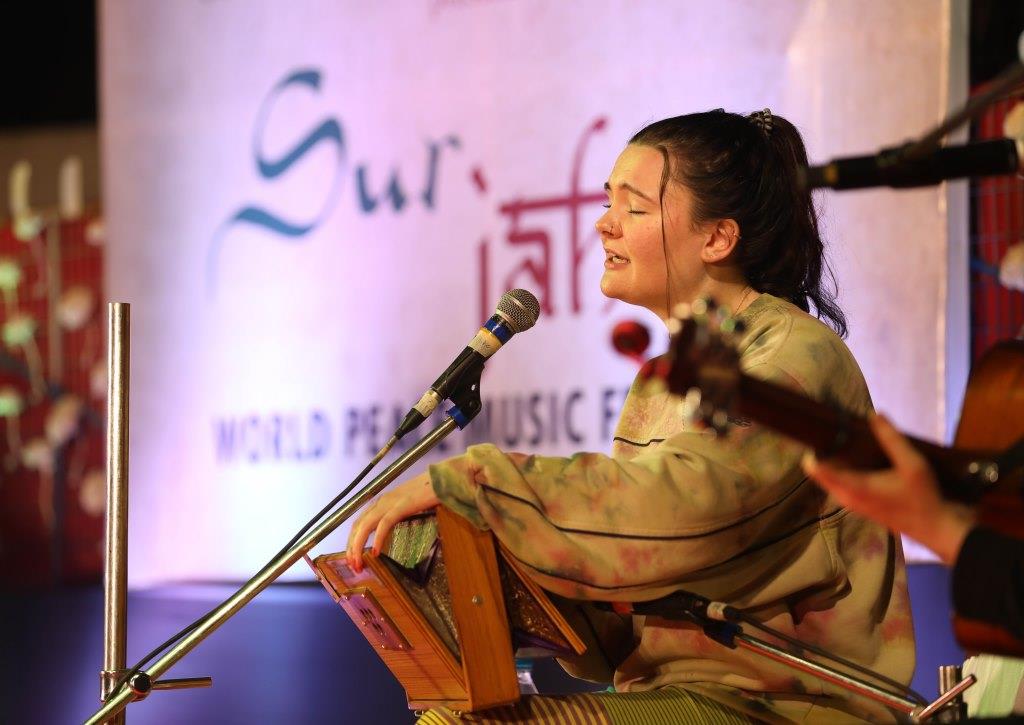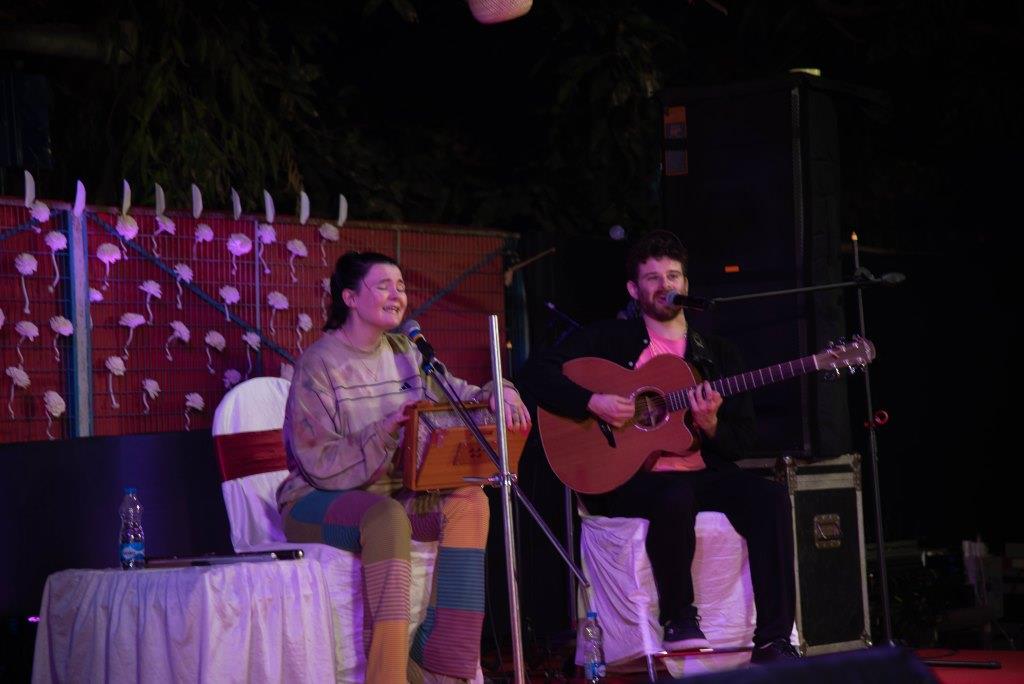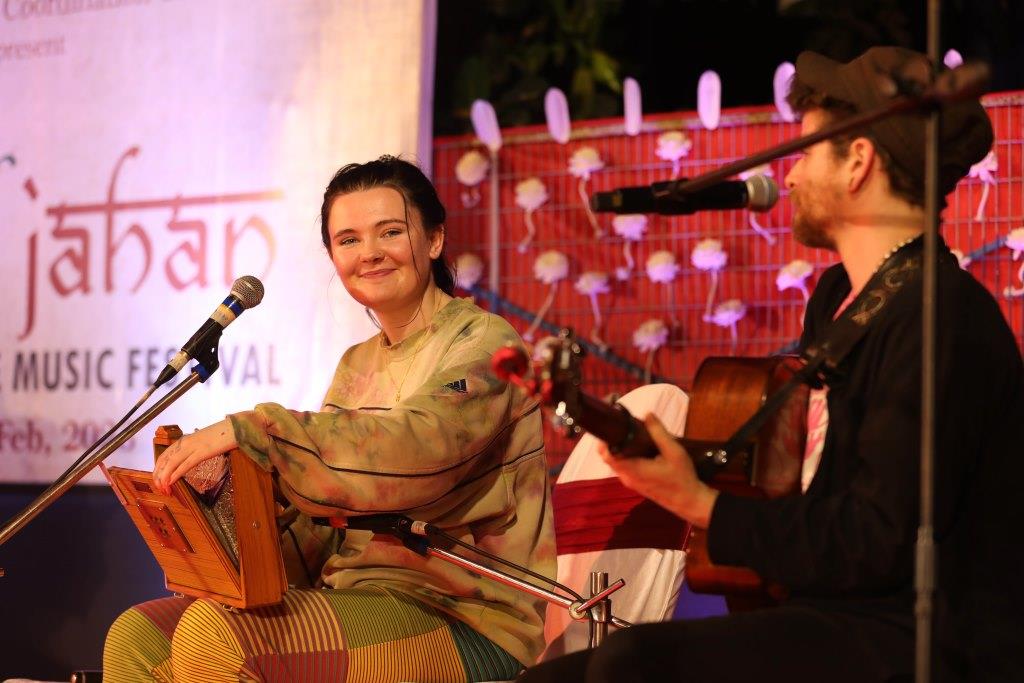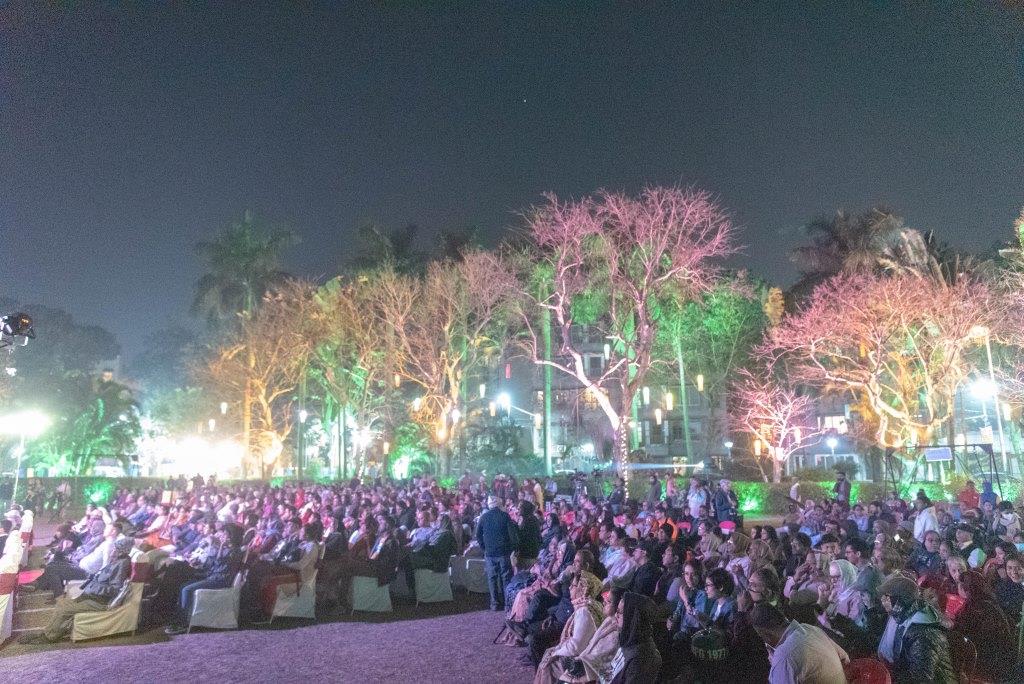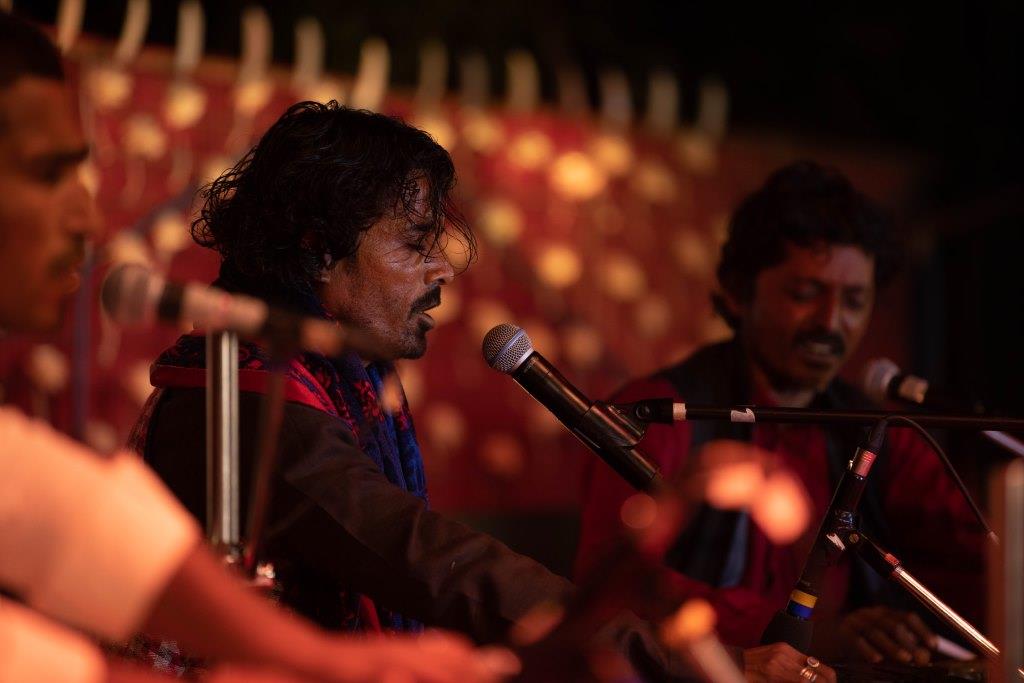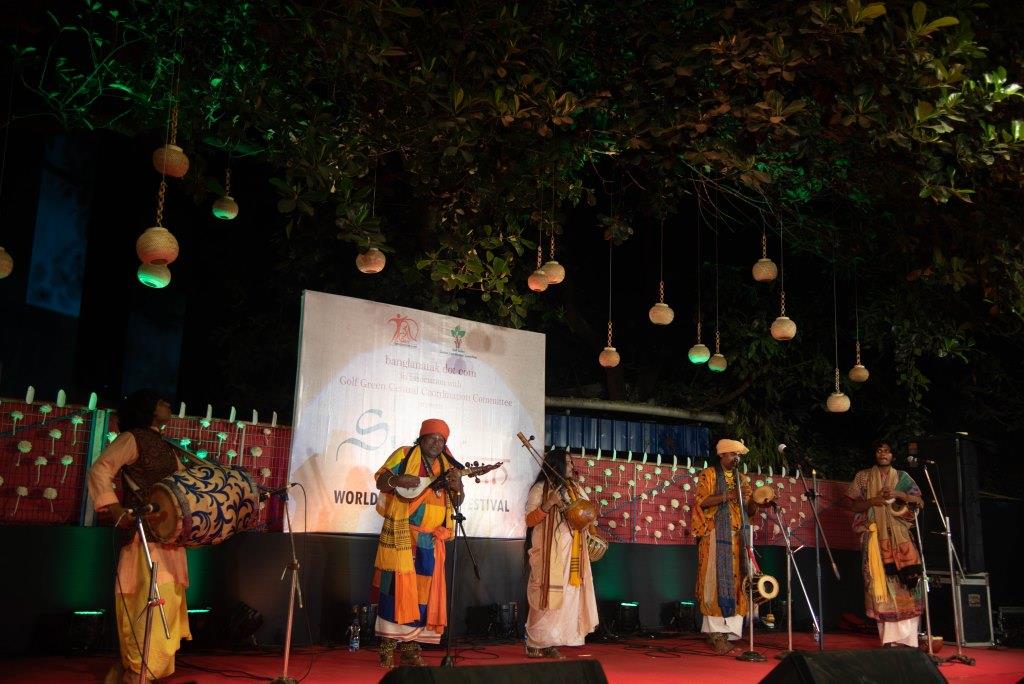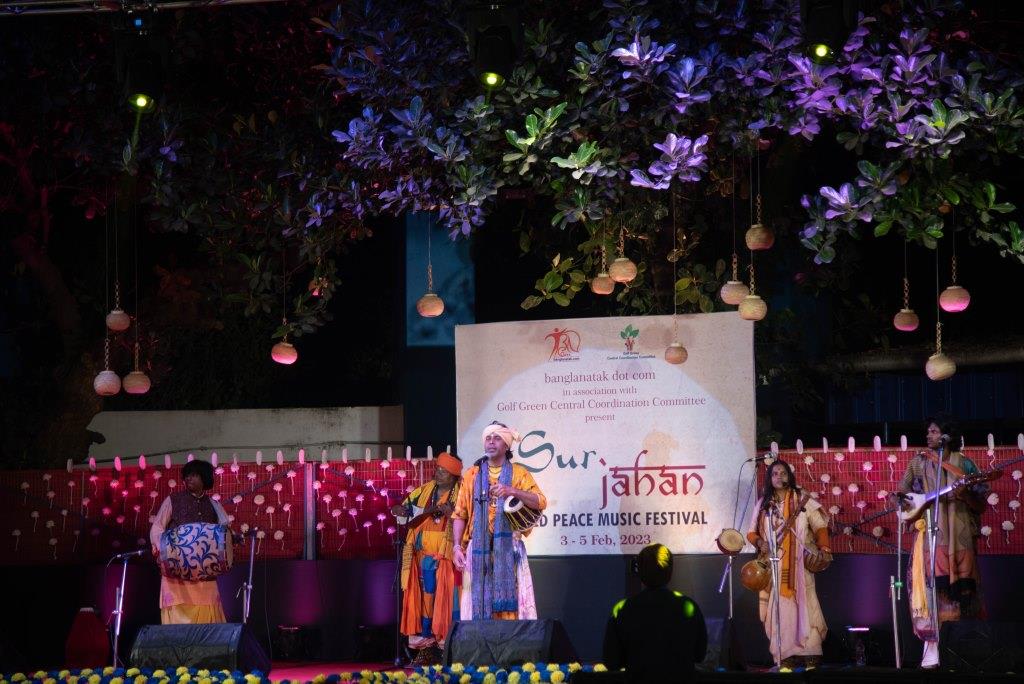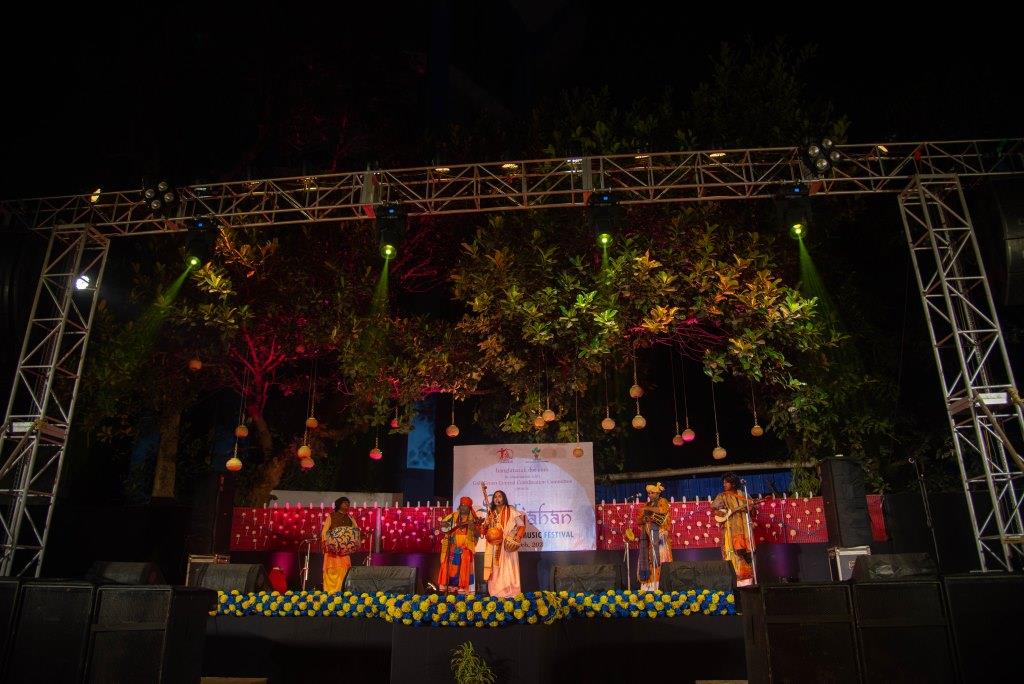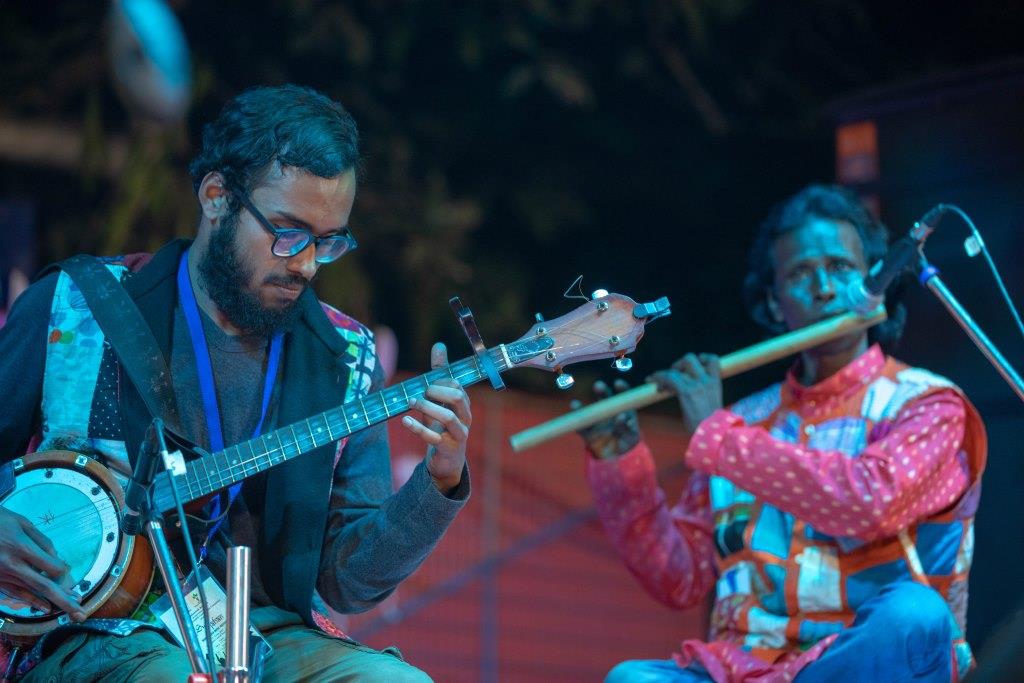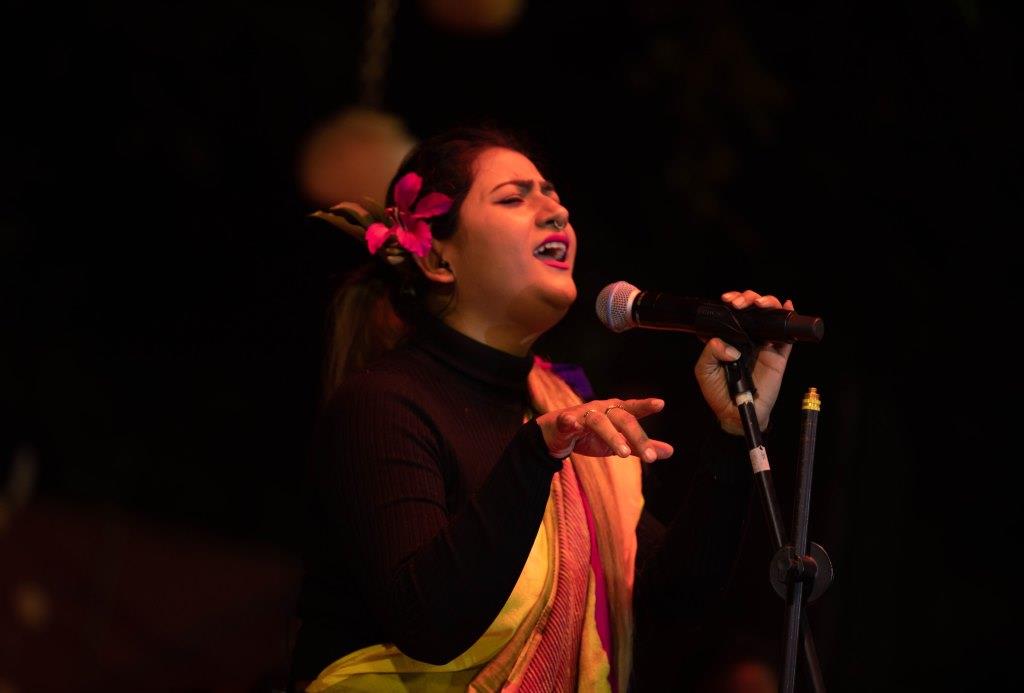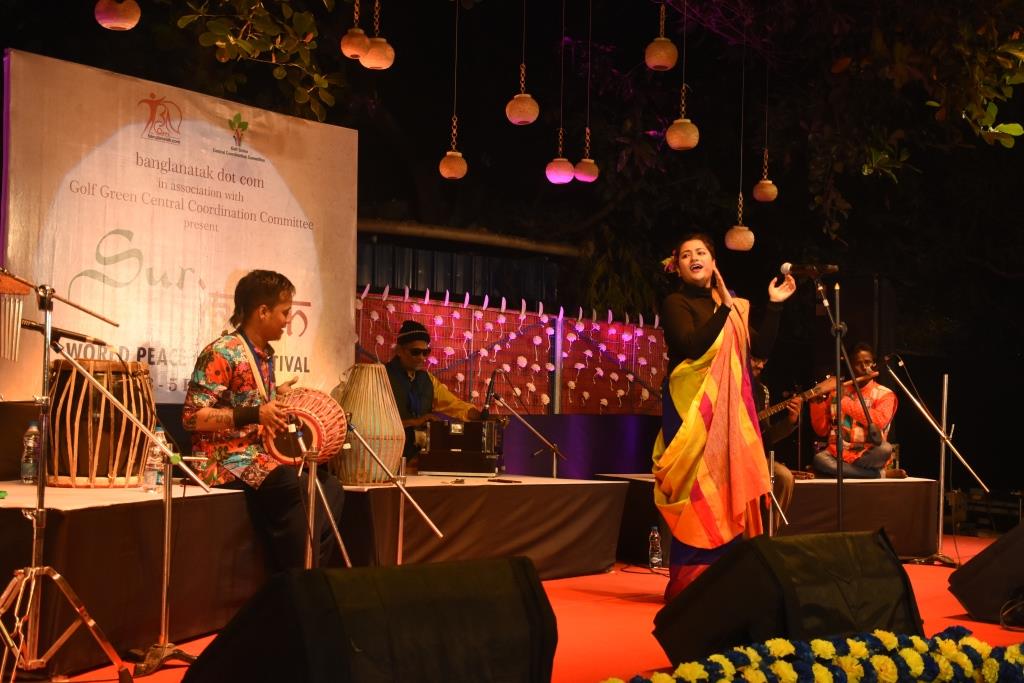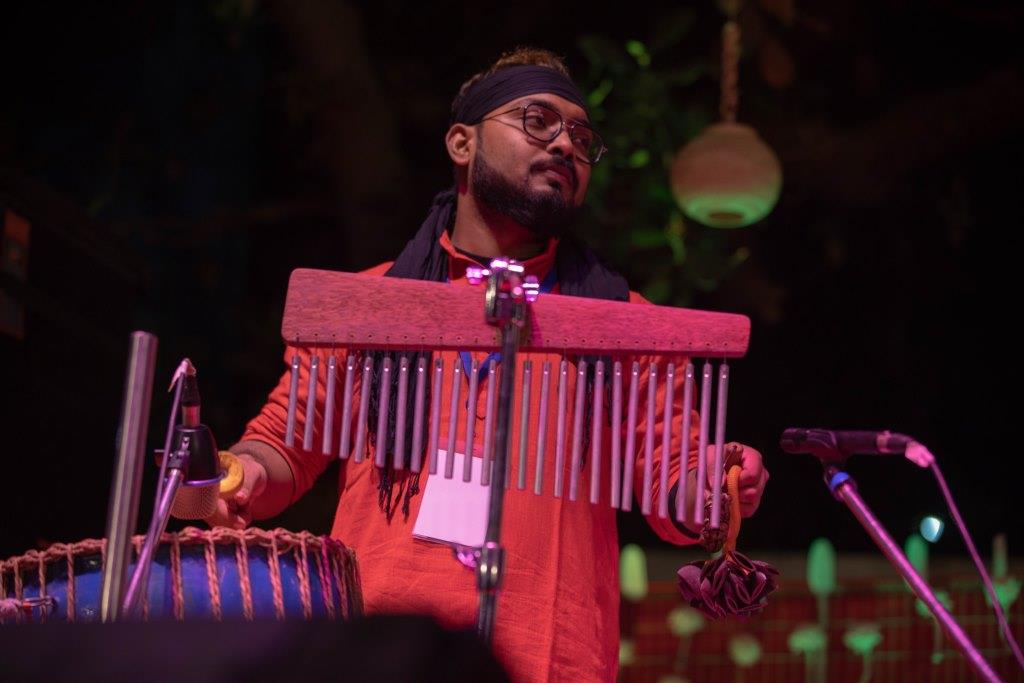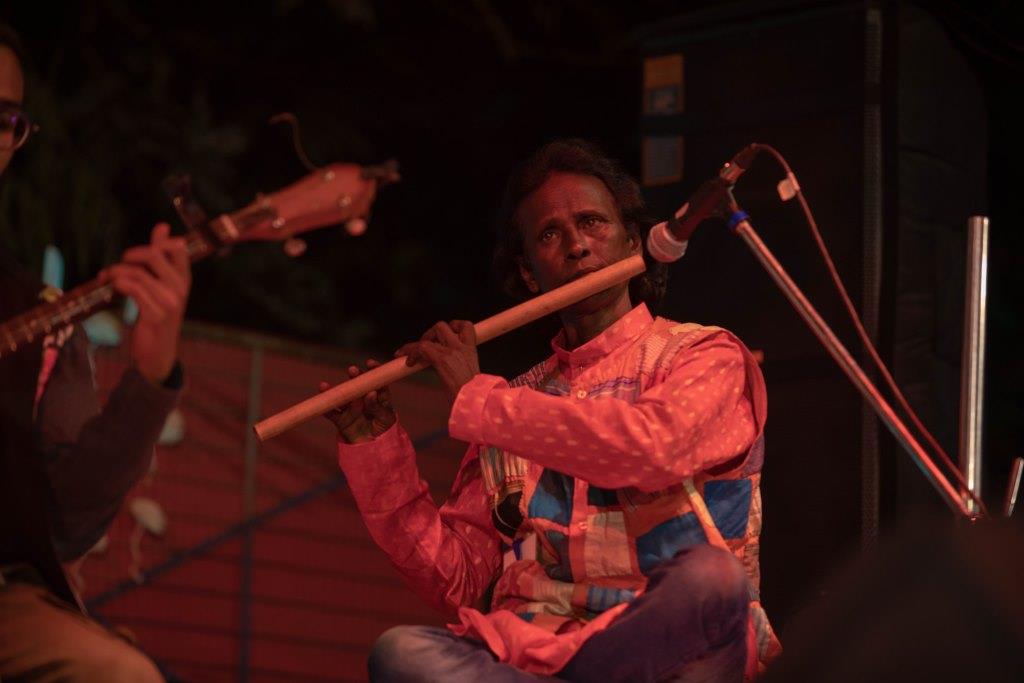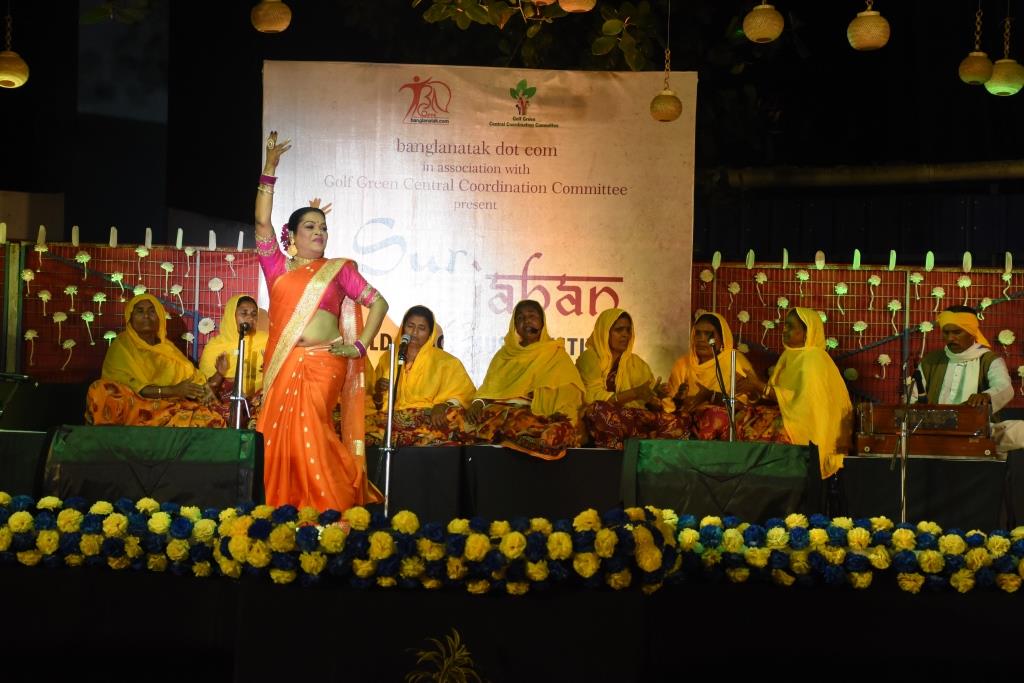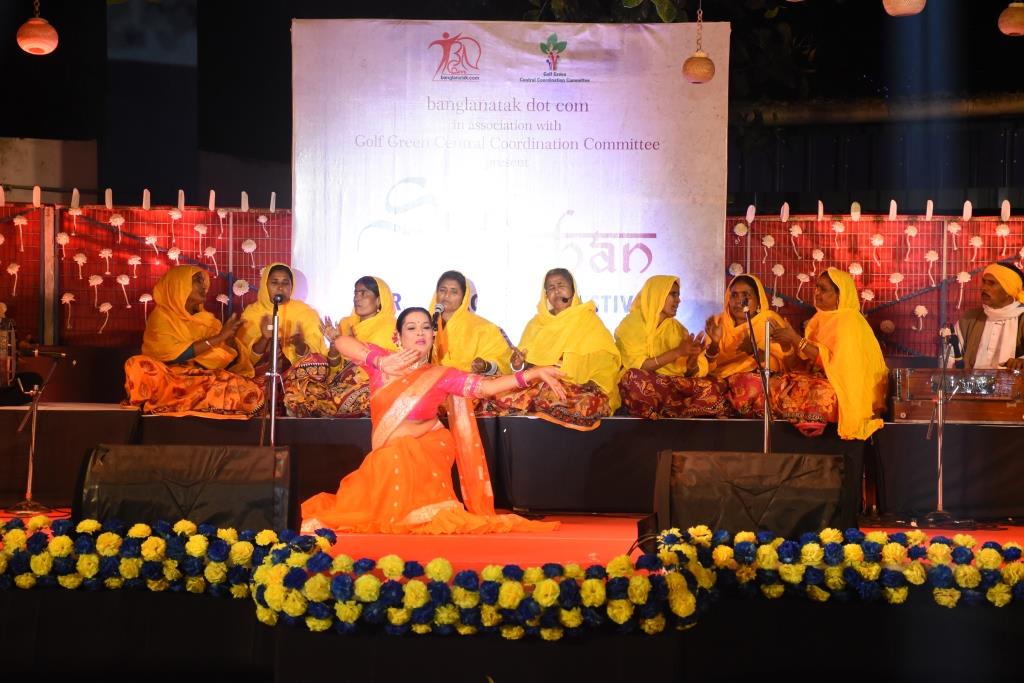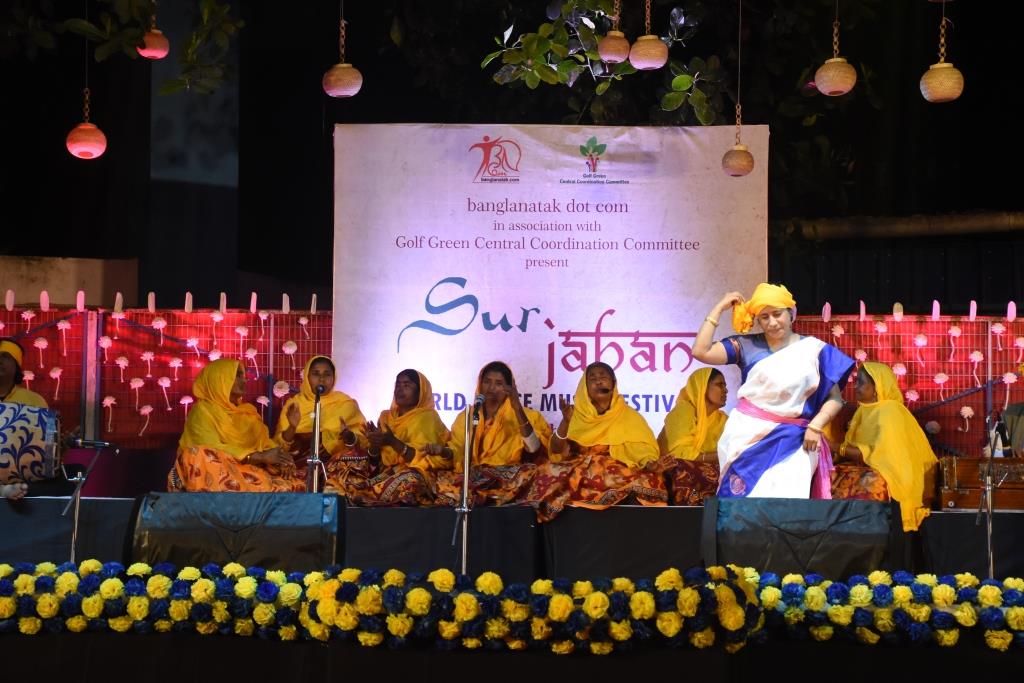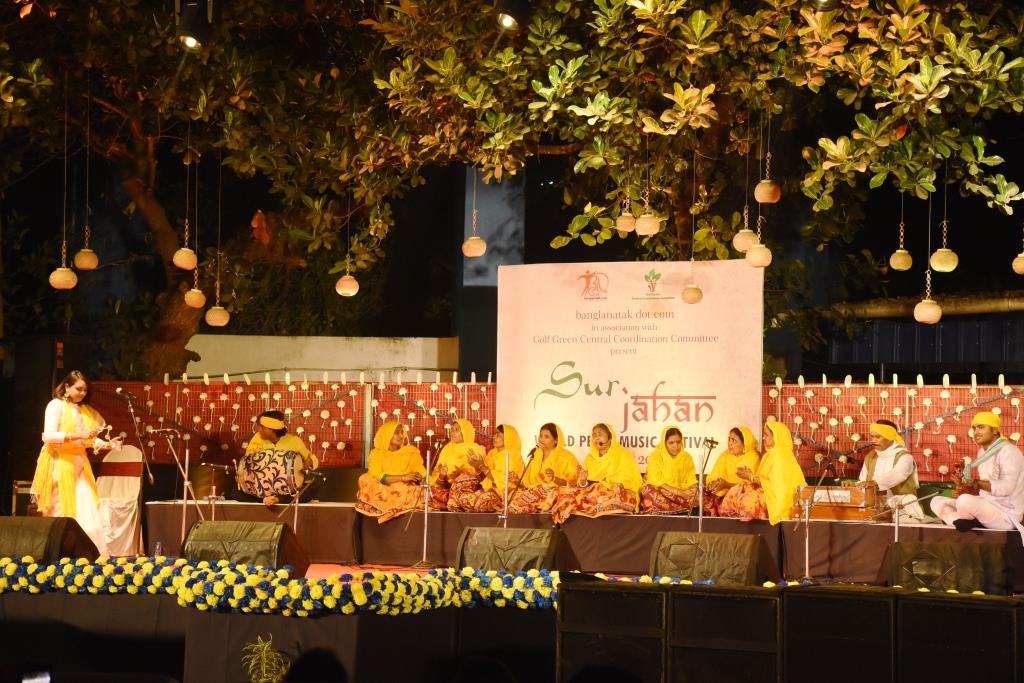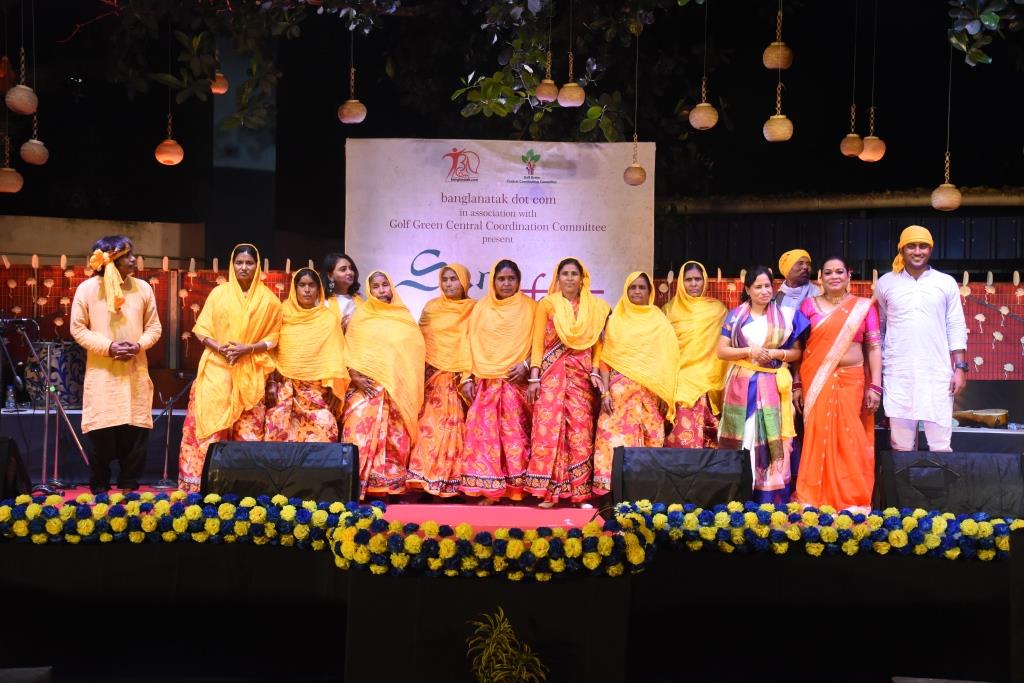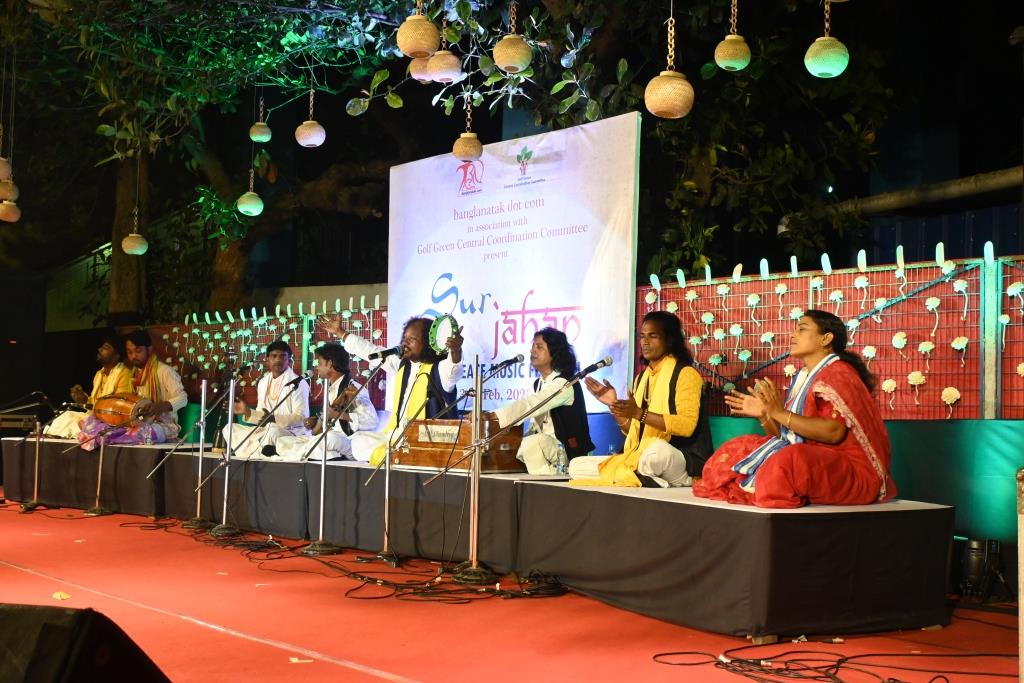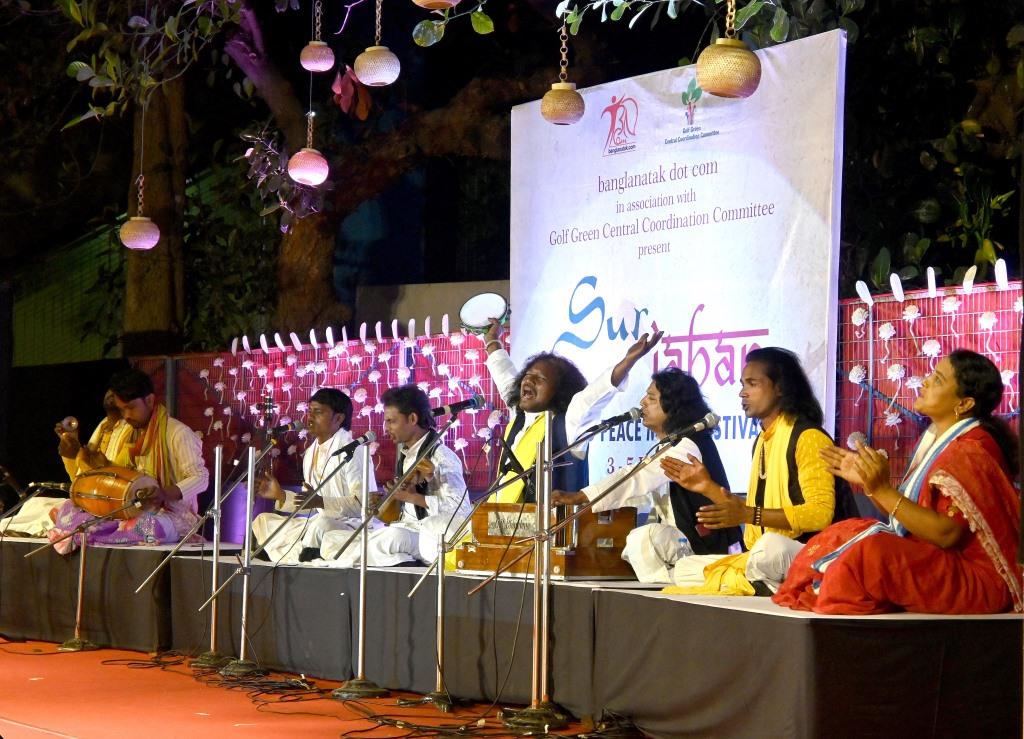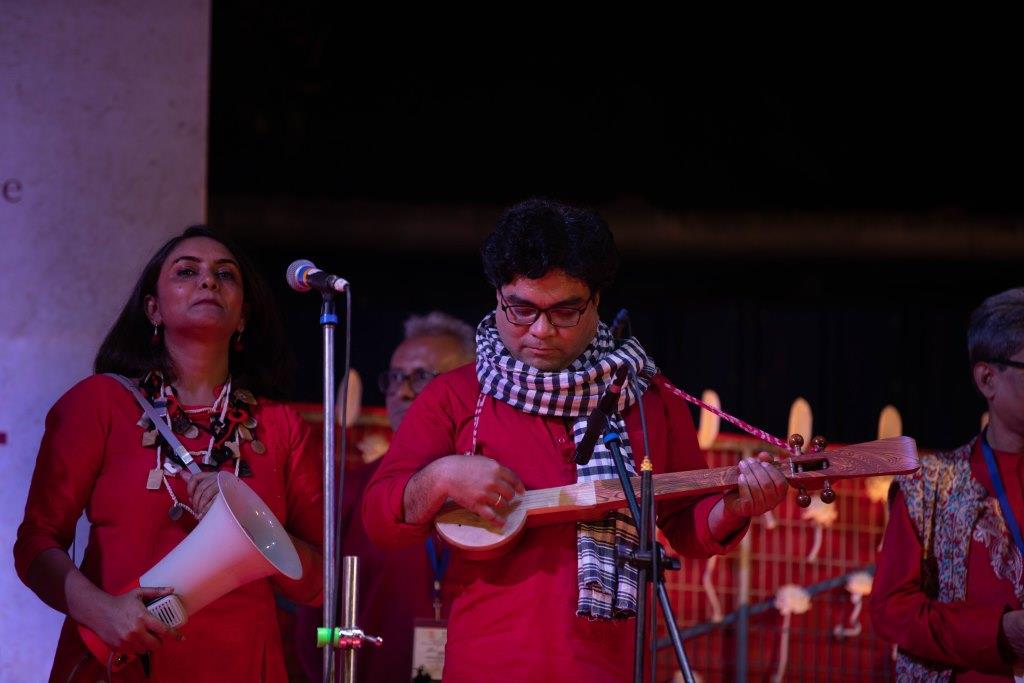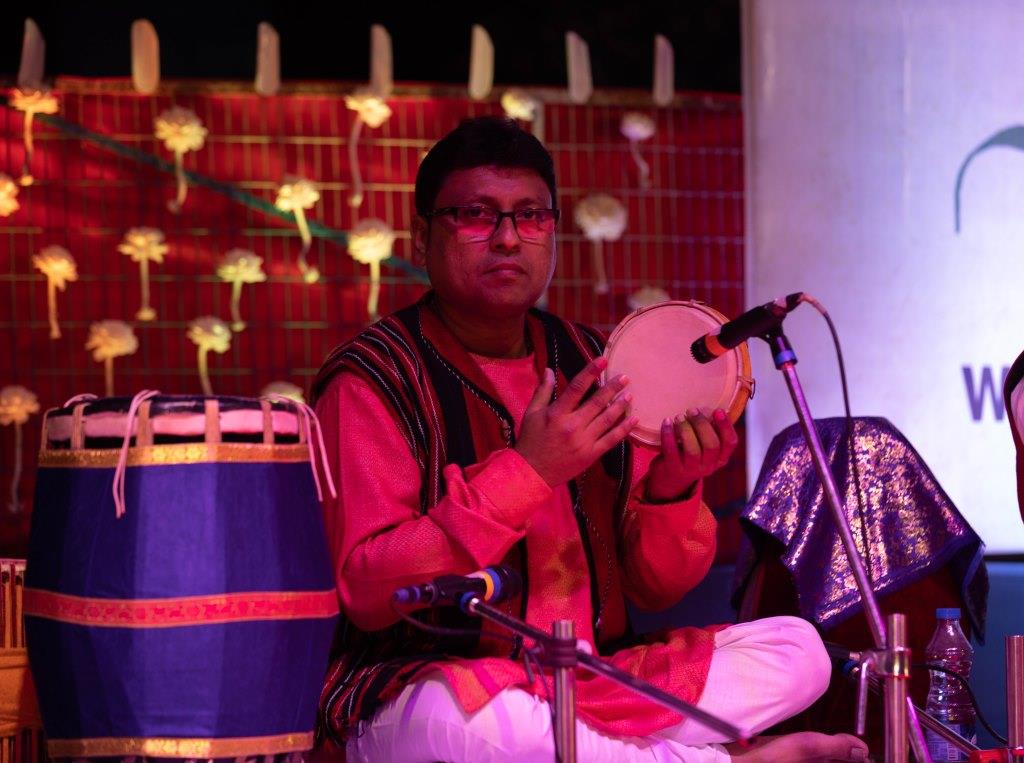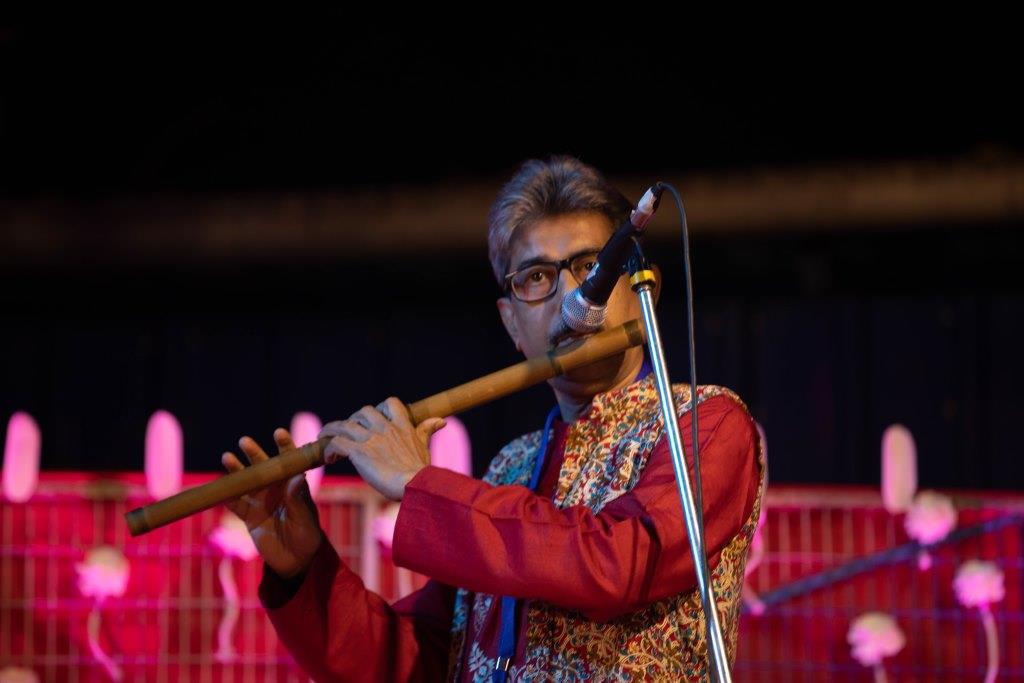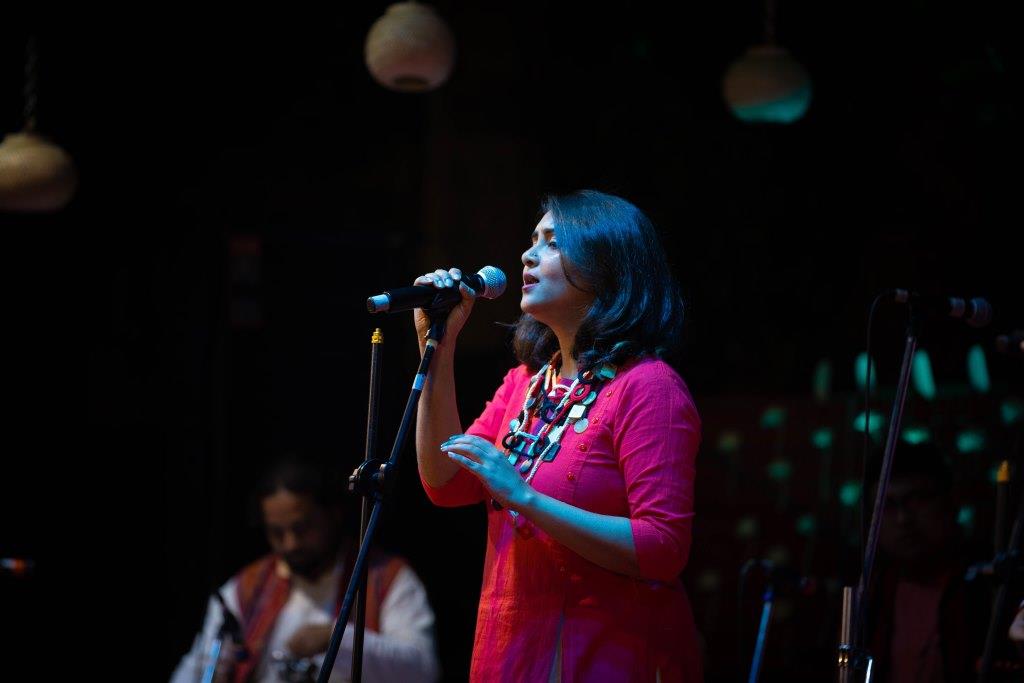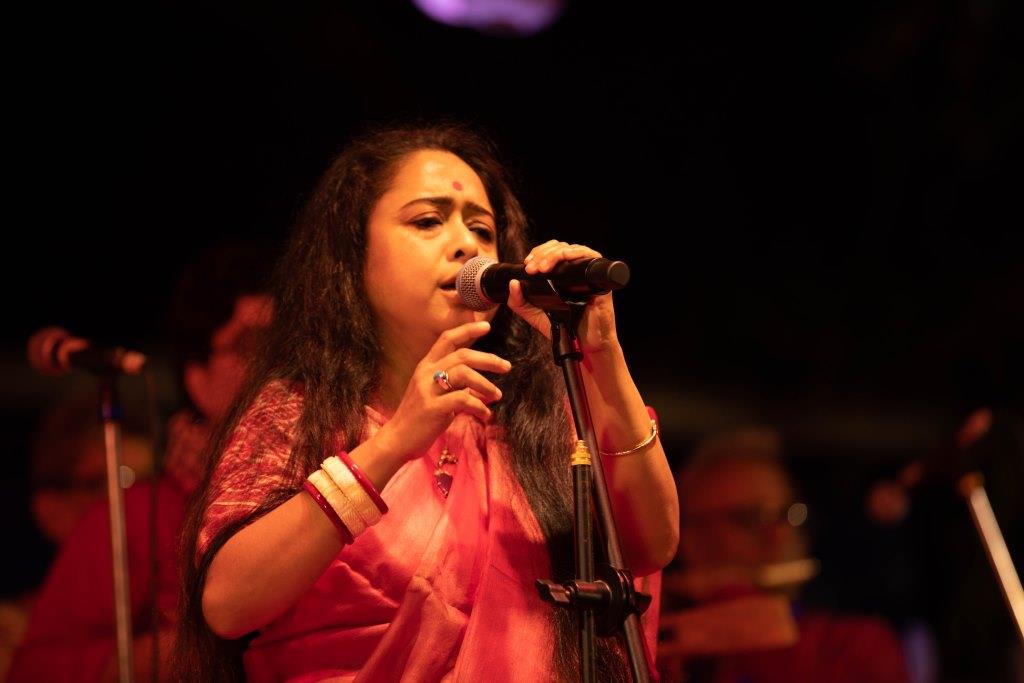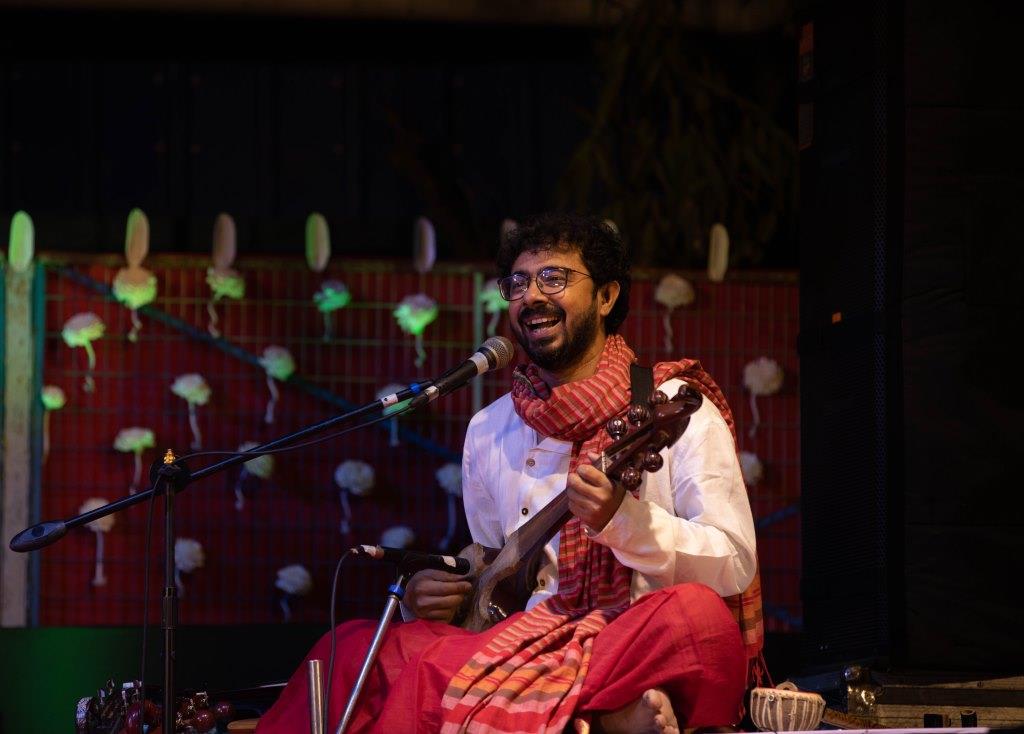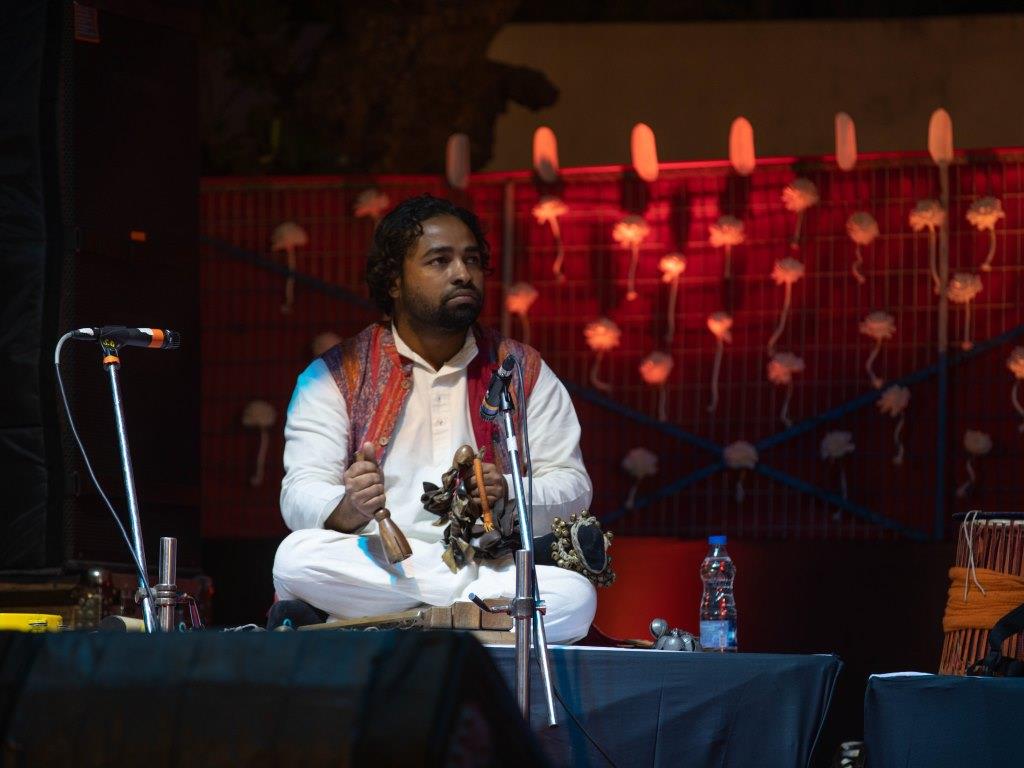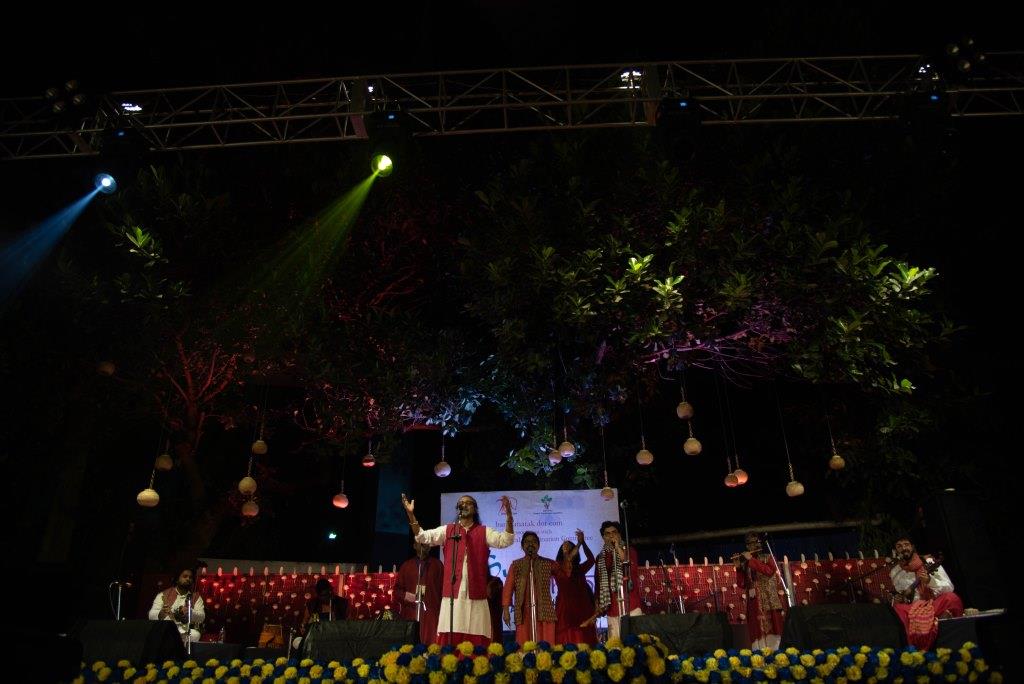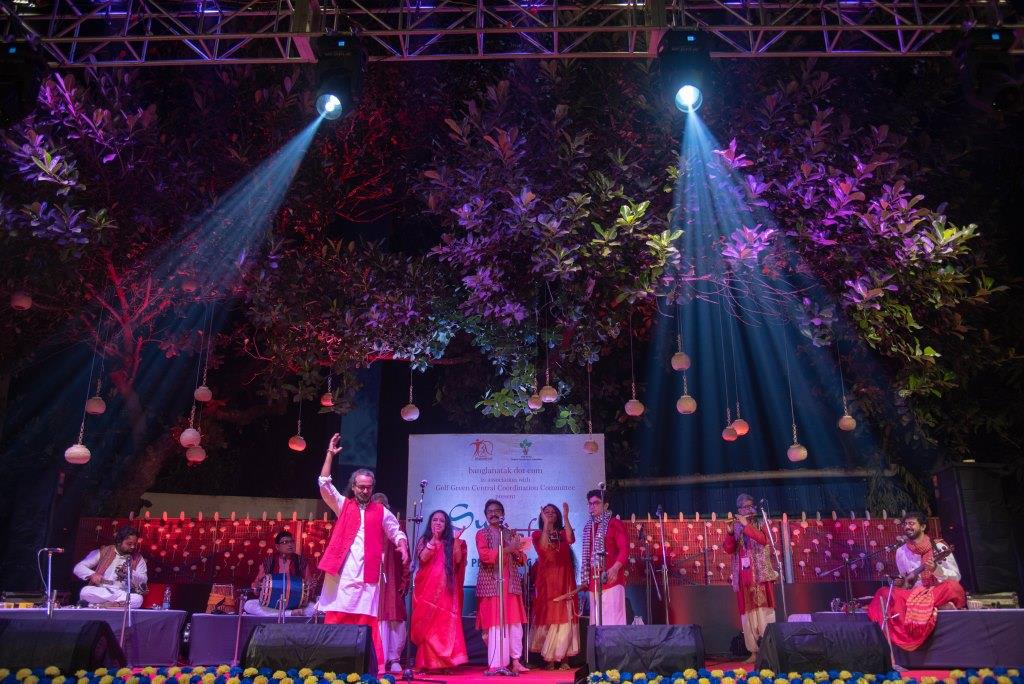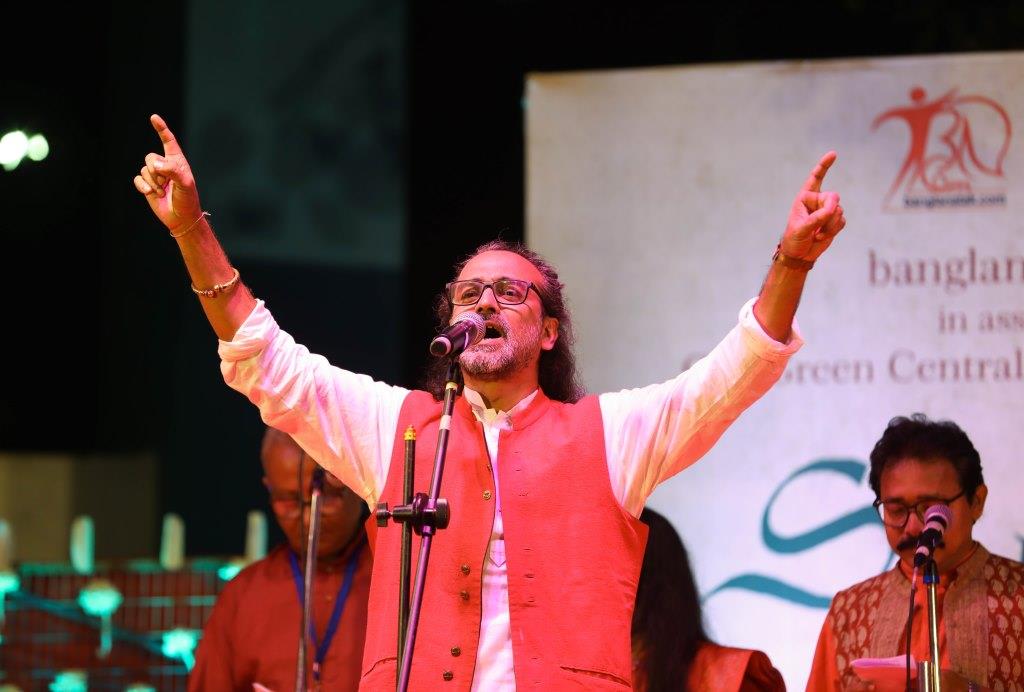Mawlawyiah, Egypt 
Mawlawyiah was established in 1994 by singer Amer Eltony to safeguard the Egyptian dervish dance heritage. The band comprises of excellent musicians led by Amer as lead singer and supported by a group of whirling dervish dancers. The dancers can do their whirling motion for long hours as part of their spiritual practice. The use of music and whirl dancing engages audience completely and takes through a journey of wonder. Their performance enchanted audiences in Egypt, India, Greece, Cyprus, France, Spain, Cuba and USA.
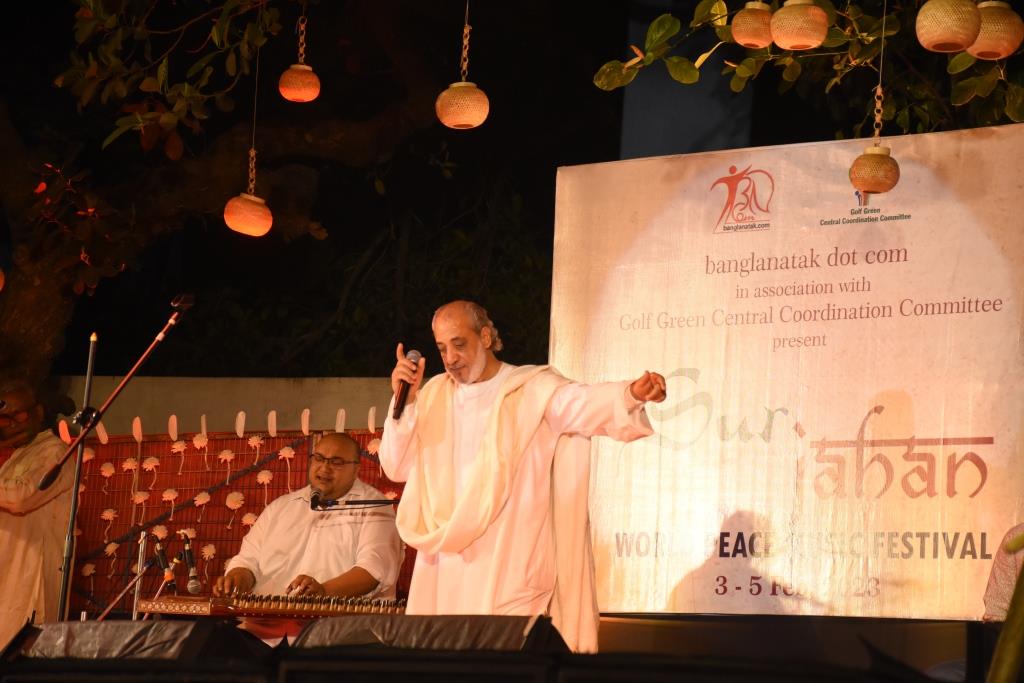
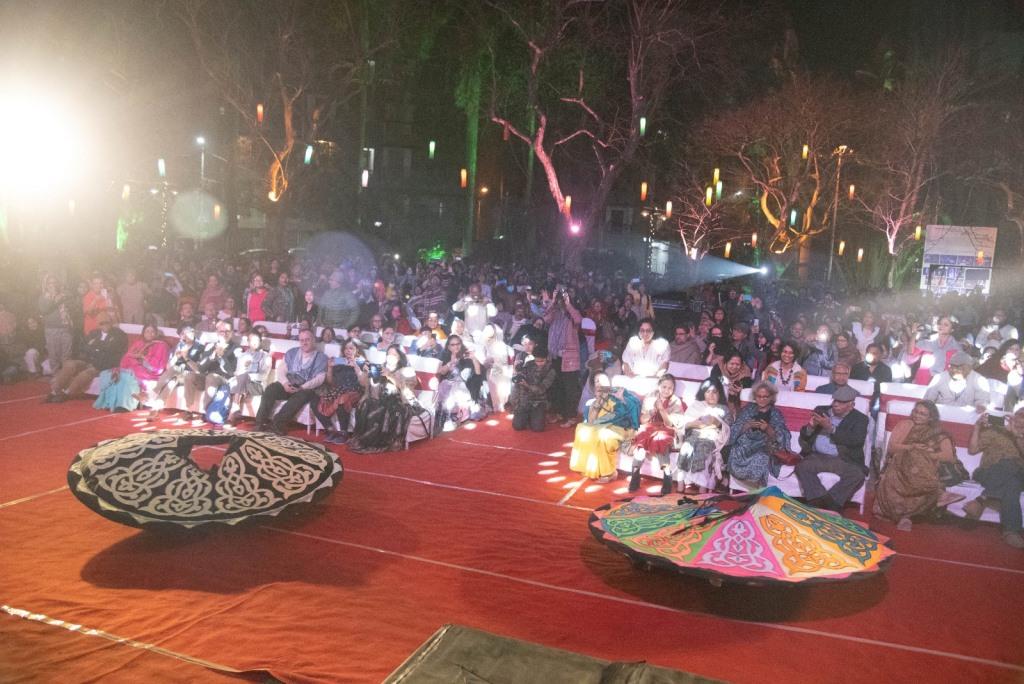

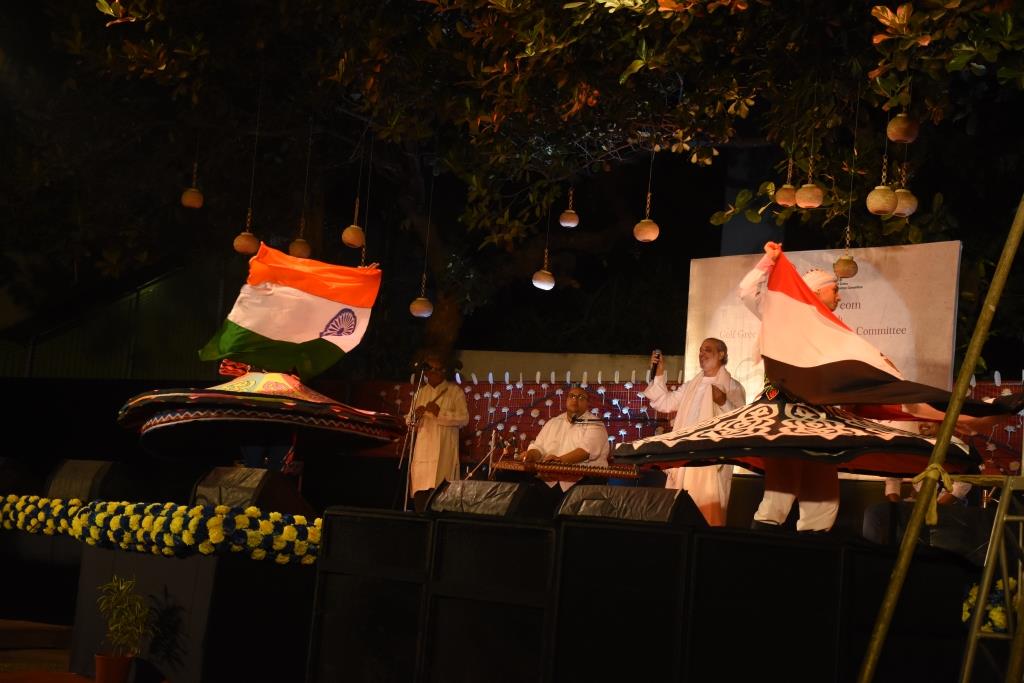
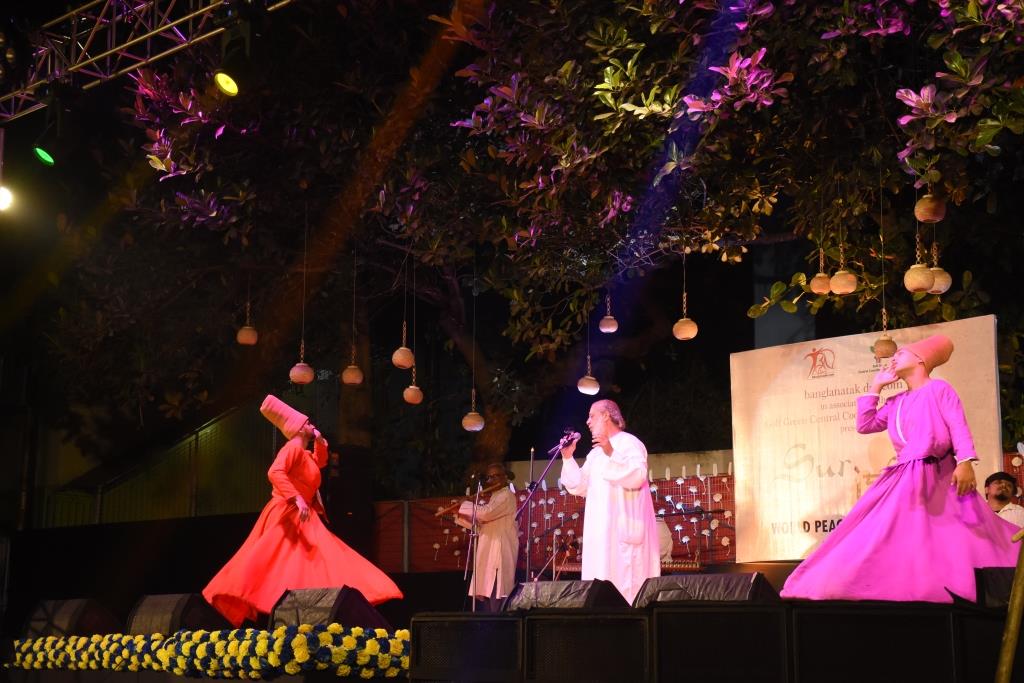
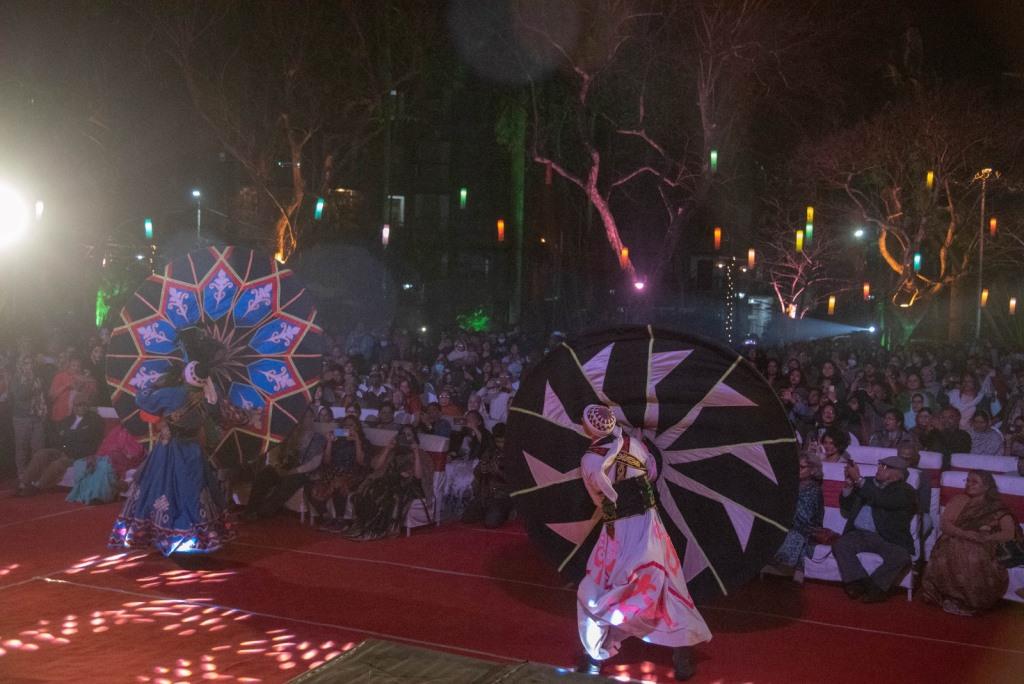
 Madagán, Northern Ireland
Madagán, Northern Ireland
Madagán is a folk music band from Belfast in Northern Ireland. The band is pioneer in using contemporary music with traditional melodies in both English and Irish and creates a musical landscape that transcends time and boundaries. The band uses some traditional instruments like the Uilleann pipes (a UNESCO intangible asset) and Concertina.
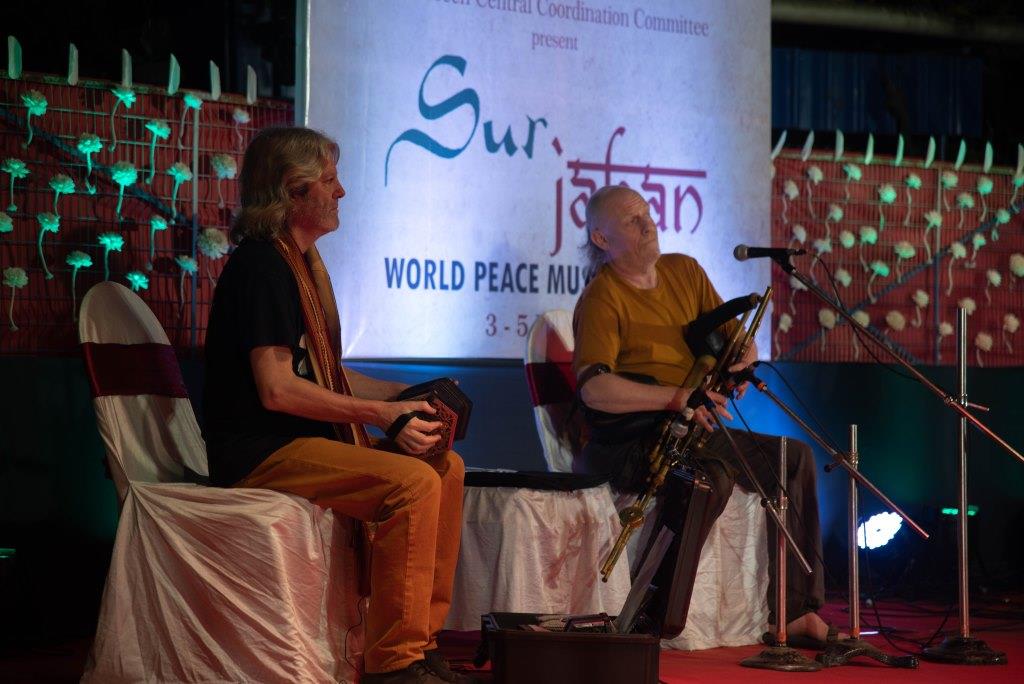
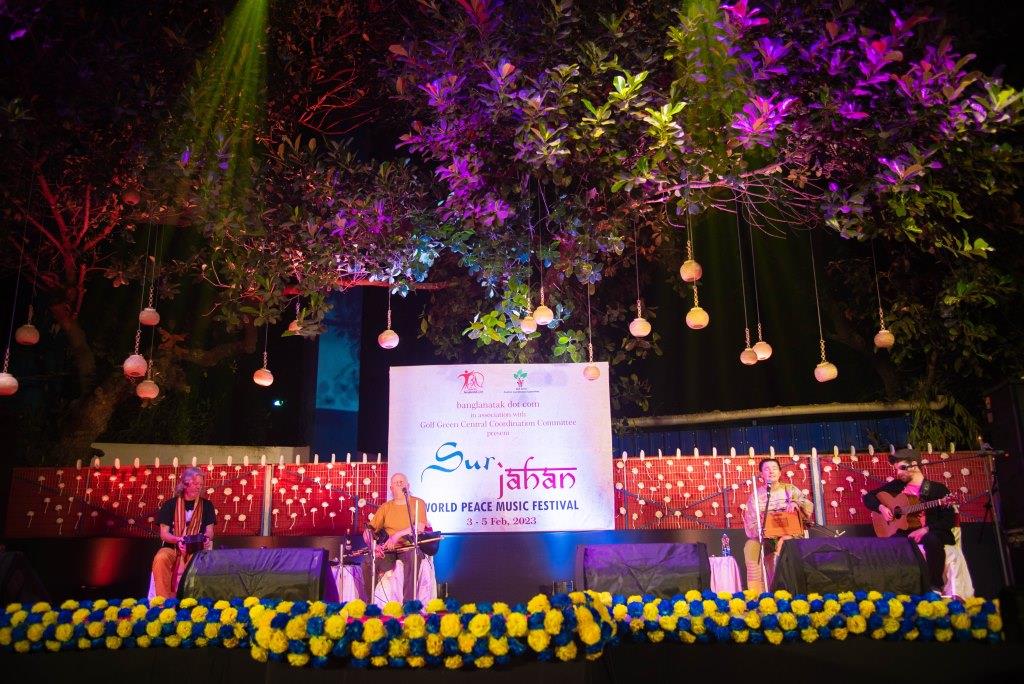
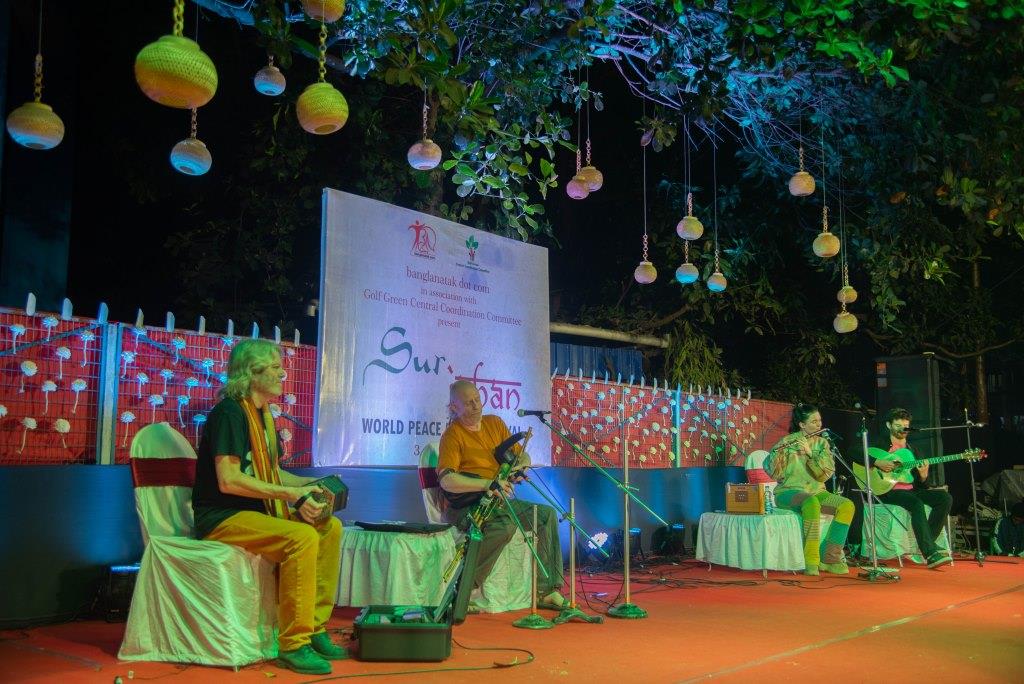
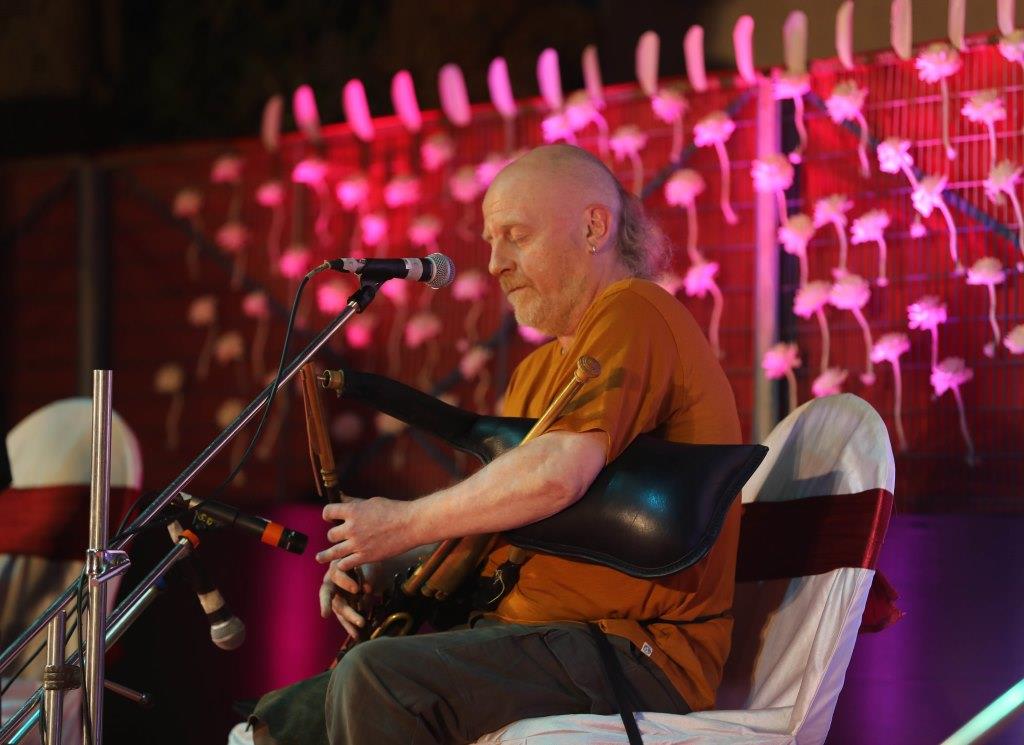
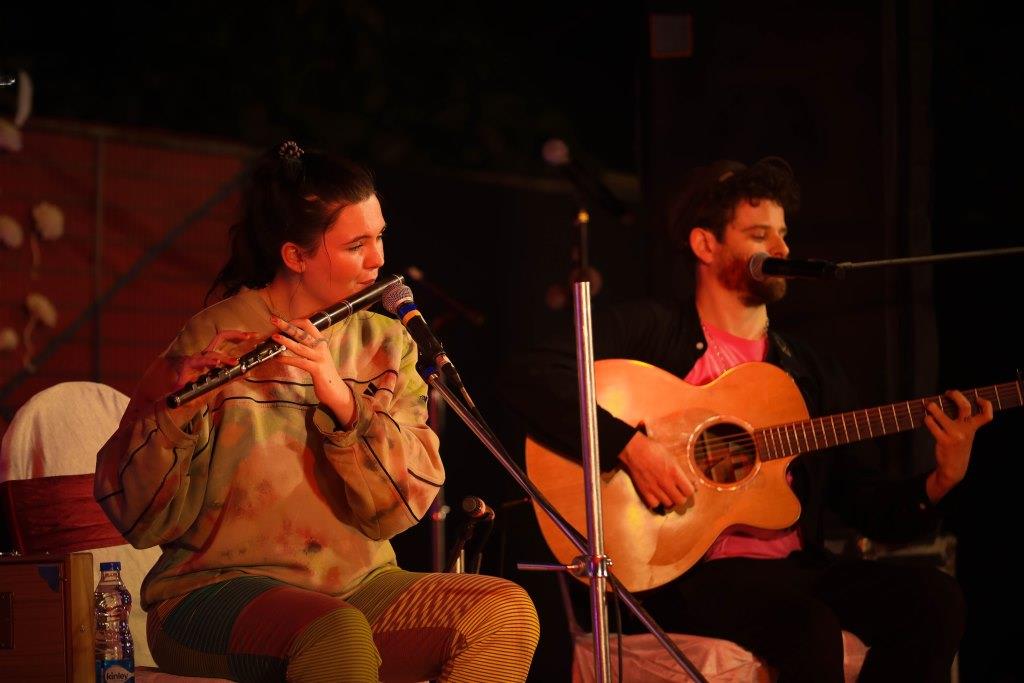
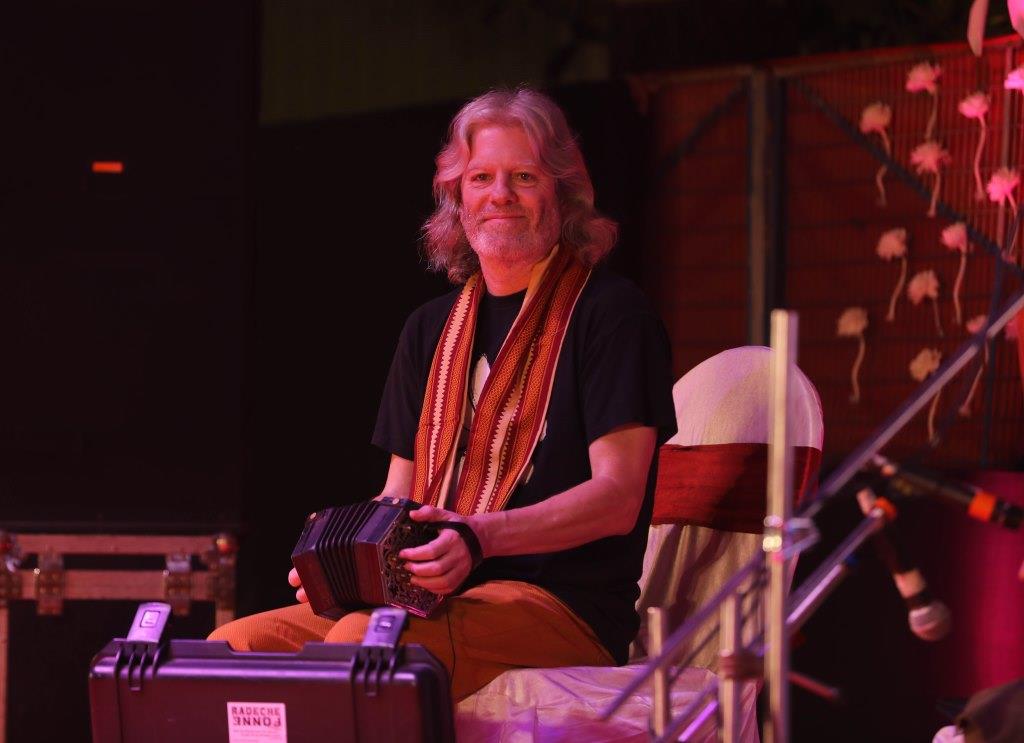
Mirs of Rajasthan, Mir Basu Khan 
Mirs are musicians of north western Rajasthan. Mirs sing Sufi & Qawwali songs in Saraiki and Urdu language. The word Mir is derived from the word Mir-I-Alam, meaning ‘My Knowledge’. It is believed that they were the Qualdars (Qawwali group) of Sheikh Syed Abdul Qadir Jilani’s Darga also known as Sarkar Ghoush Pak Peer’s Darga in Baghdad, Iraq. Mir Basu Khan is a folk musician from the Mir community of Pugal in Bikaner. He sings in the rare Sindhi Saraiki language and plays harmonium. His repertoire is inspired from Meera, Kabir, Bulleh Shah, Amir Khusroo and Khwaja Ghulam Farid and many more. He has performed at various local and national events including first edition of Sufi Sutra (now Sur Jahan) in 2011, IFA events, Rajasthan Kabir Yatra, Jodhpur RIFF, Folk Music festival at Habitat Centre in New Delhi etc.
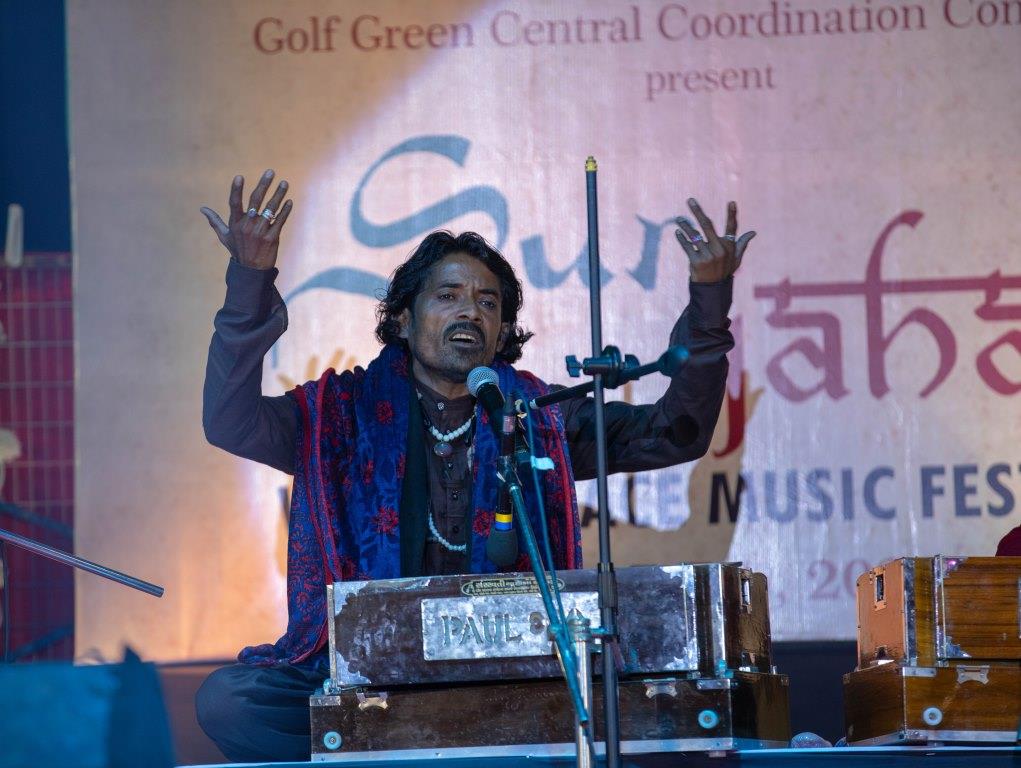
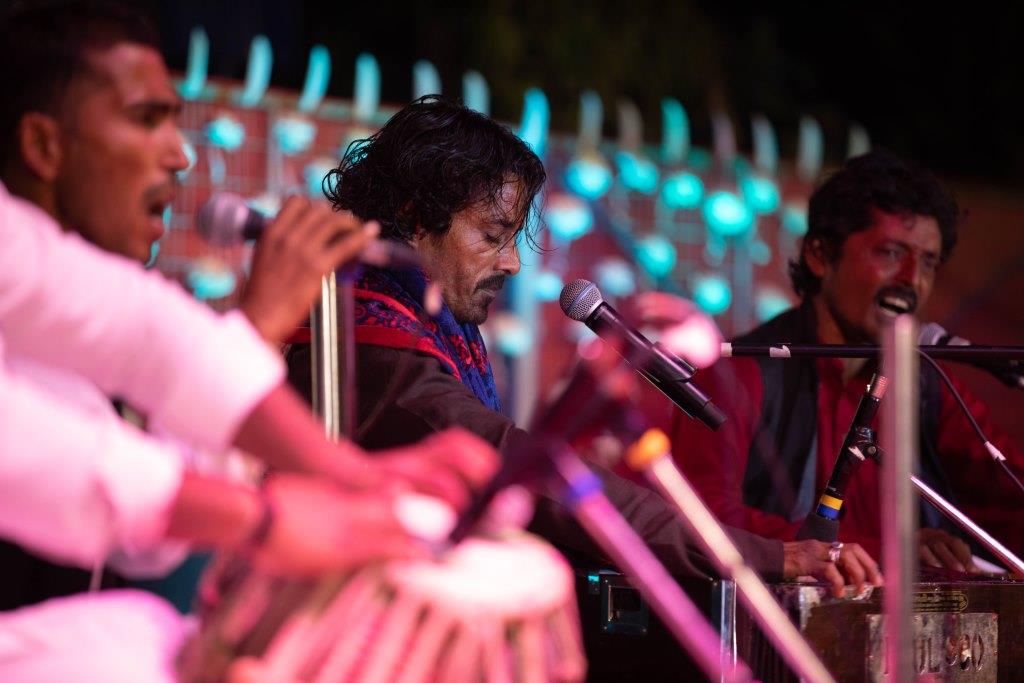
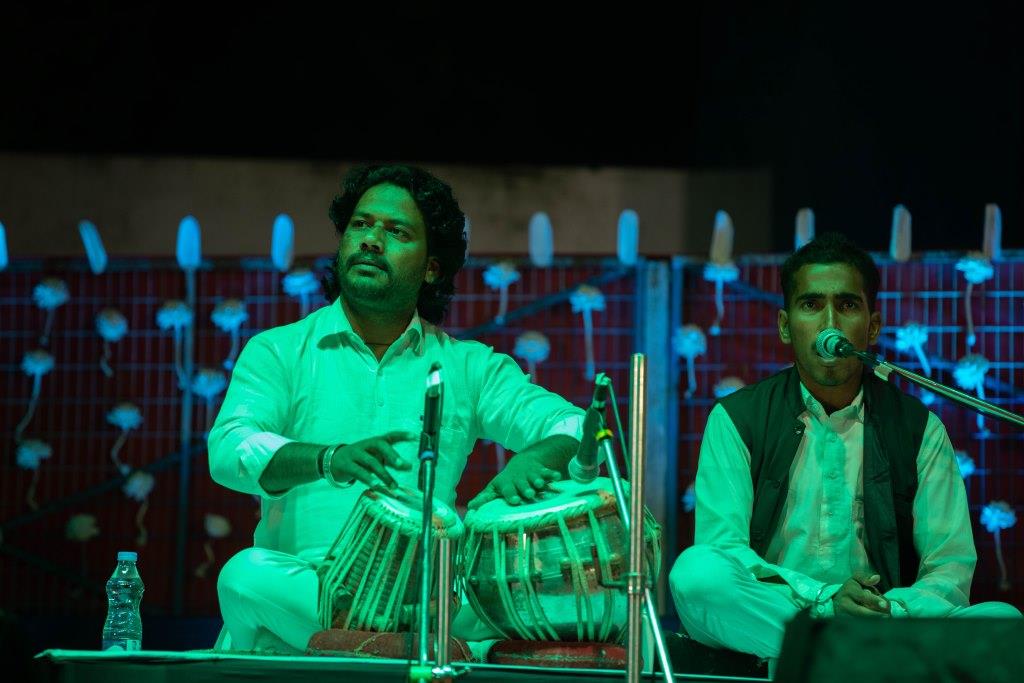
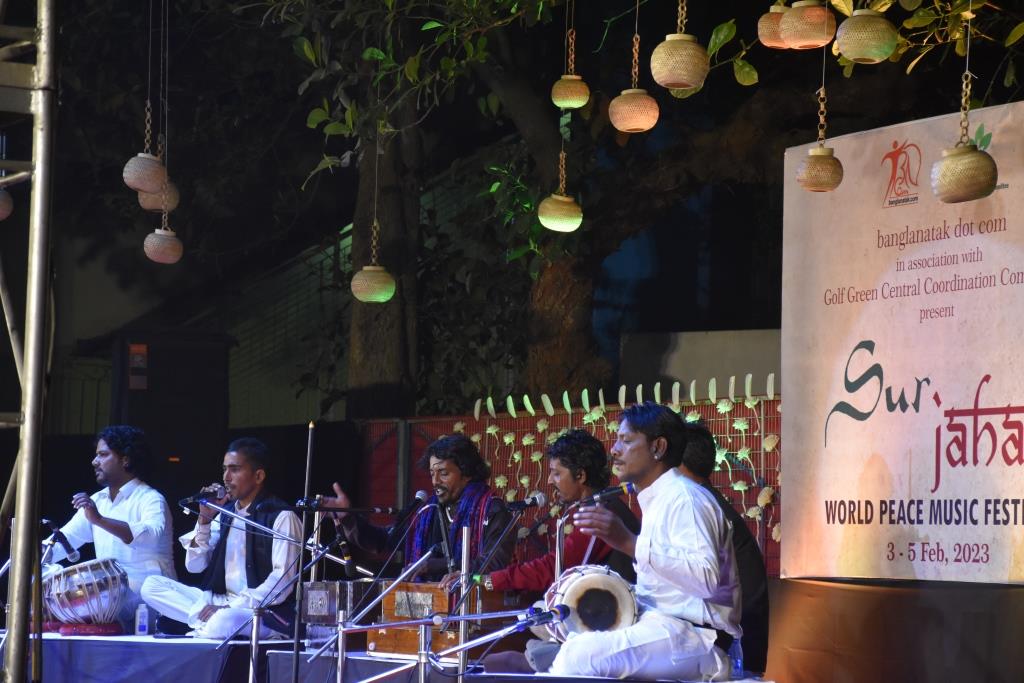
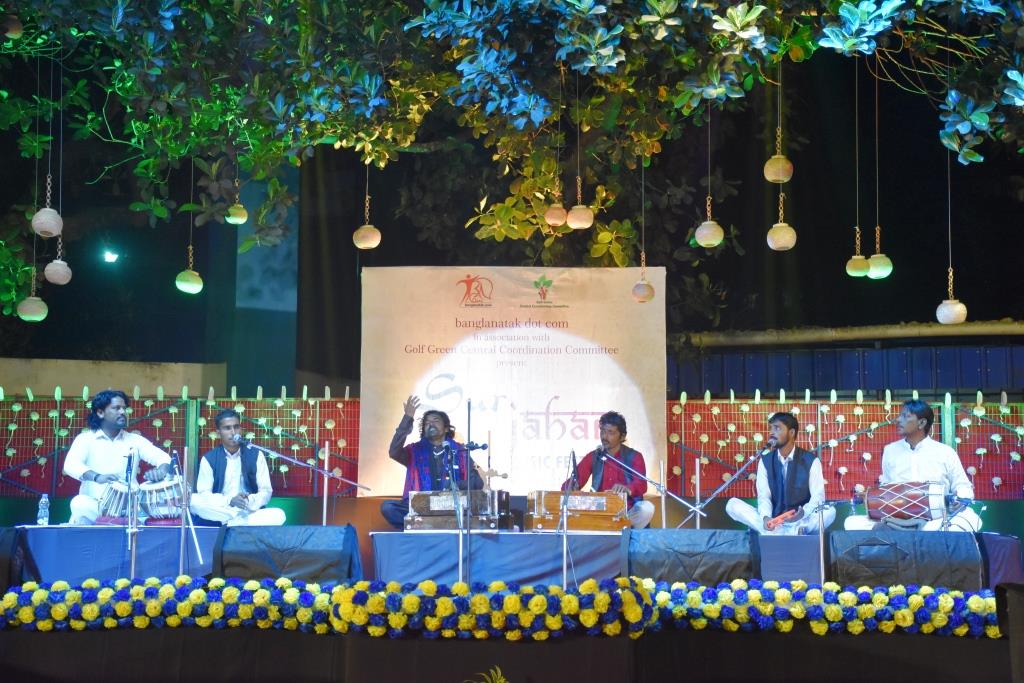
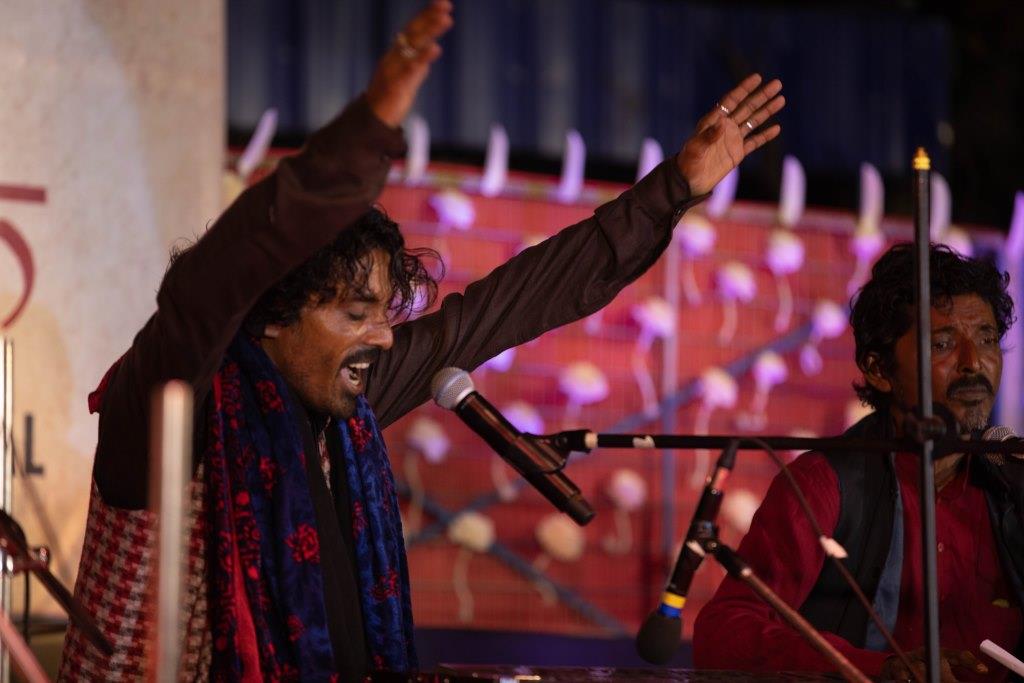
 Rangamatir Baul, Rina Das Baul
Rangamatir Baul, Rina Das Baul
Baul is both music and a philosophy celebrating the essence of universal love. Rina Das Baul is one of the most respected and renowned female Baul singer from Santiniketan. Belonging from a Baul family, Rina learned Baul music from her grandfather when she was a child. Rina has travelled far and wide to national and global destinations and presented her music. In October 2022, Rina and her team Rangamatir Baul performed at WOMEX, the highest World Music platform, held at Lisbon in Portugal. They have also performed across India and abroad including in Brittany festival in France, Urkult Festival in Sweden. They collaborated with international artists like Casey Drissen from USA, Thommy Wahlstorm & Robert Wahlstorm of Sweden, and Otava Yo led by Alexey Belkin. Rina is now actively involved in transmitting their folk music heritage to the local children. The other members of her team are Dibakar Das Baul (Vocal, Dotara), Bamaprasad Singha (vocalist and a master Dubki player), Purnendu Das (Khamak & Dotara player) and Khokan Das (internationally acclaimed Dhol and Khol player).
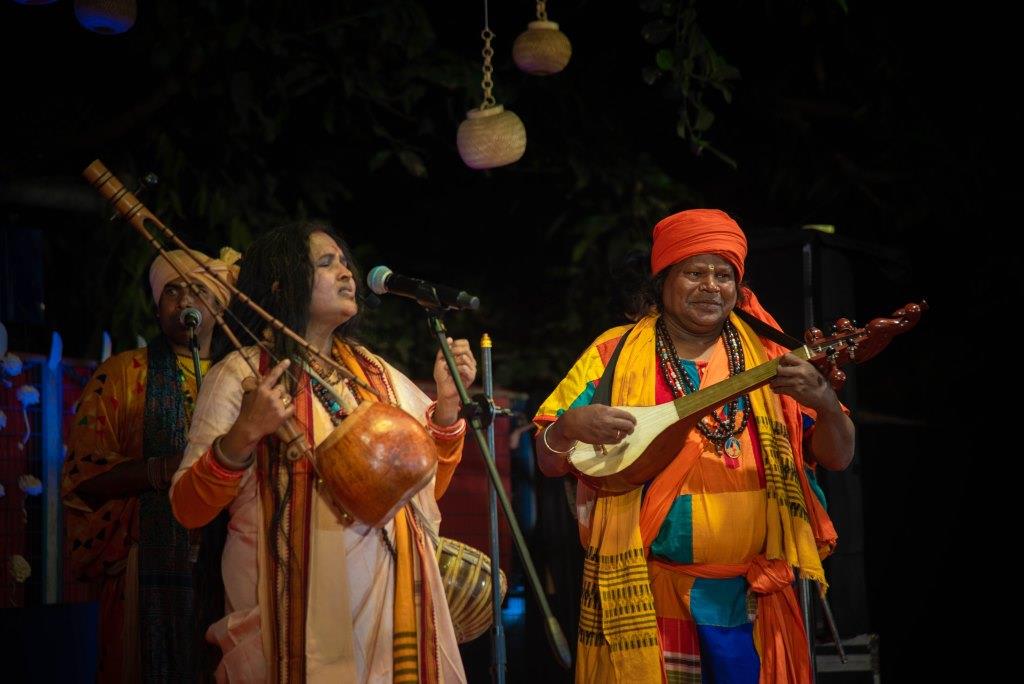
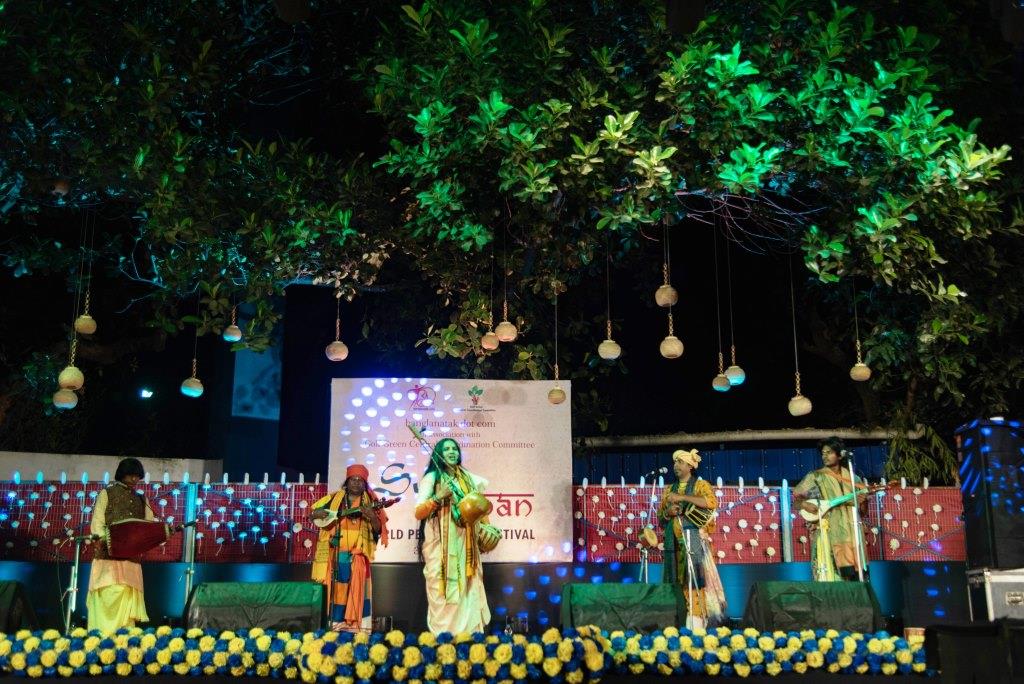
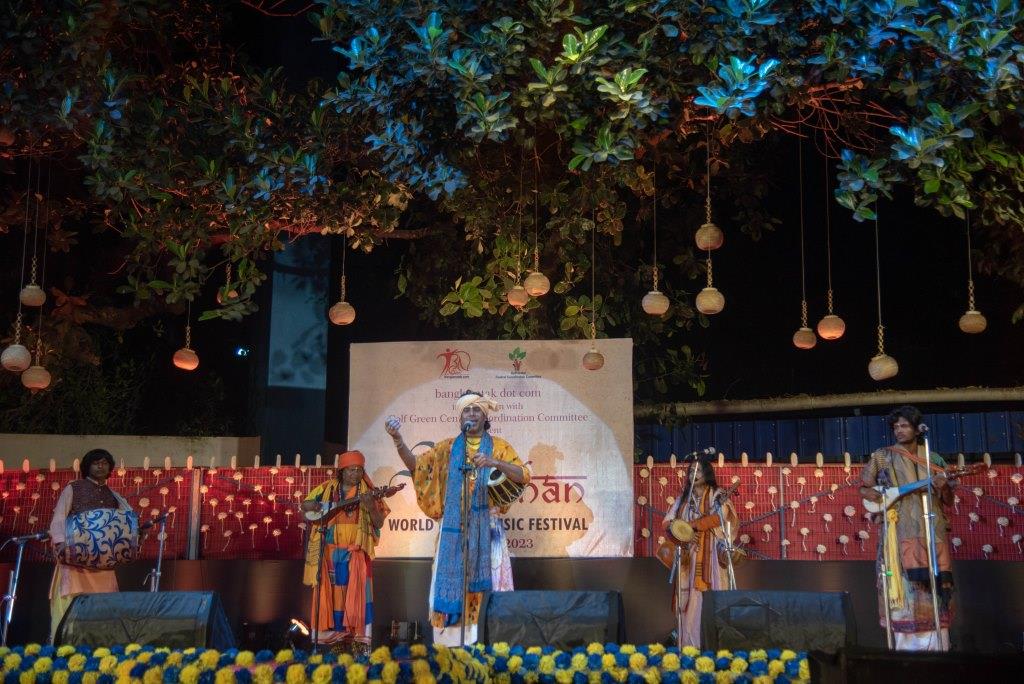
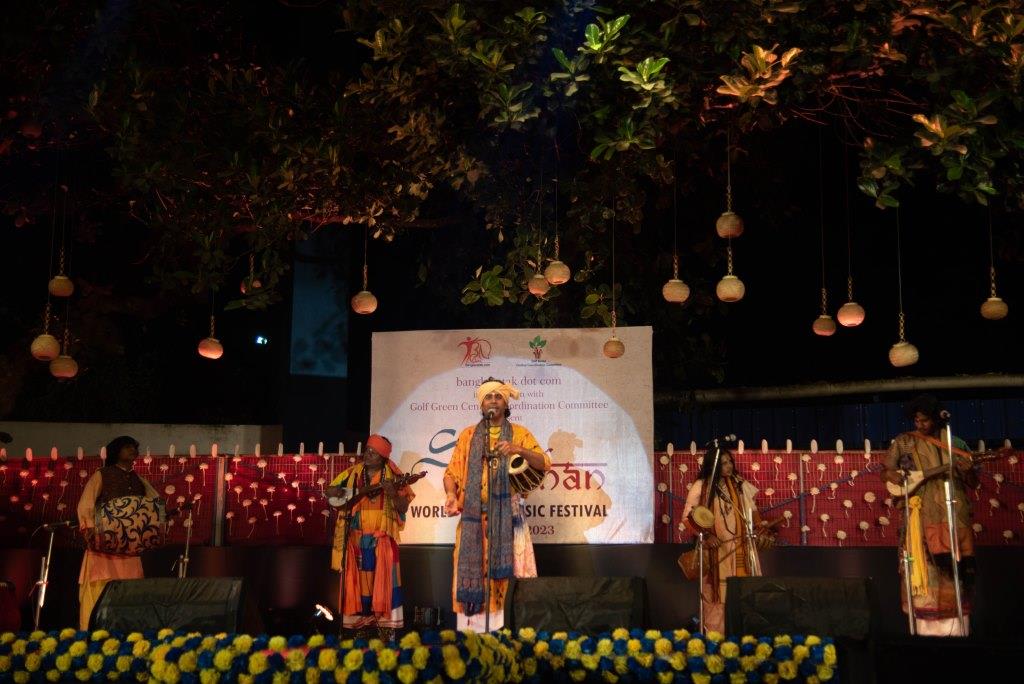
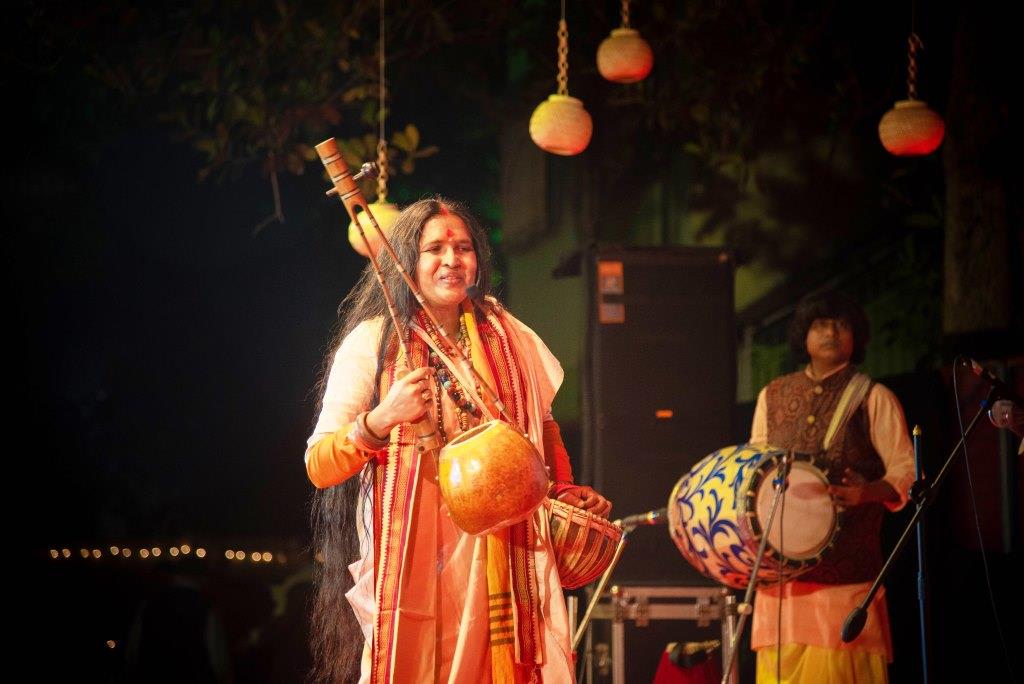
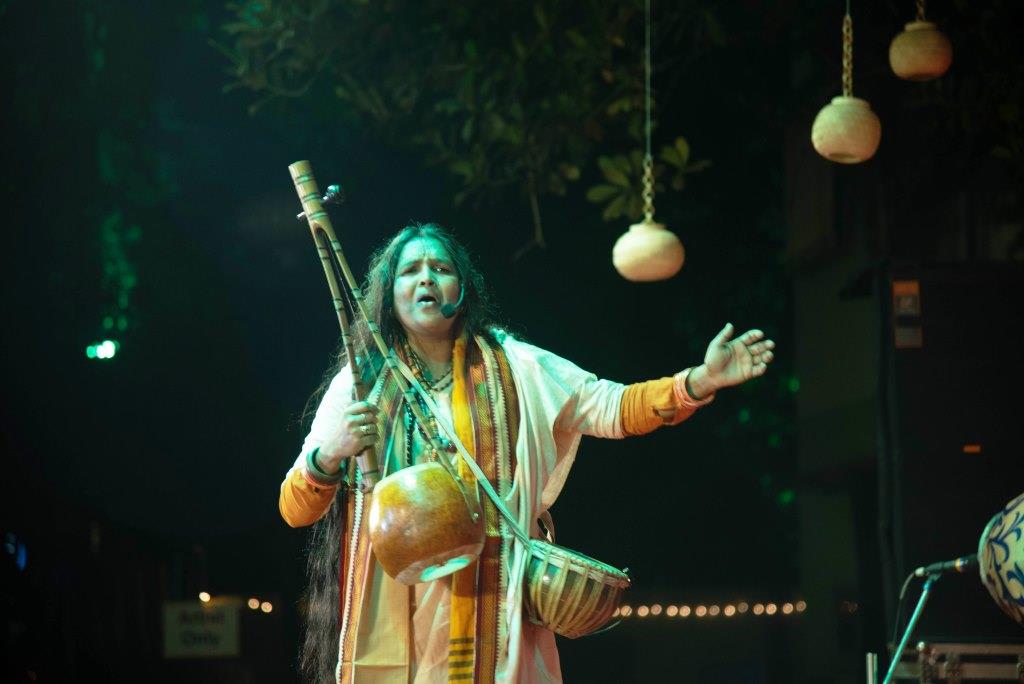
Rarh Darbar, Arpita Chakraborty 
Jhumur is a lifestyle folk music of West Bengal found mostly in the districts of Bankura & Purulia . One of the special characteristics of Jhumur songs is its strong rhythmic component. The post-Chaitanya era saw the merging of colloquial Jhumur with classical forms and Kirtan tunes, leading to the development of Darbari Jhumur and courtly dance practices performed under royal patronage. The main contents of Darbari Jhumur genre are love of Radha-Krishna and is an influence of Bhaktitatva of Vaishnavism. Arpita Chakraborty is an eminent Jhumur singer from Bankura, now residing in Kolkata. She got acquainted with the musical heritage through her father, legendary Jhumur singer Subhash Chakraborty’s guidance and has earned her Ph.D on Jhumur traditions of Bengal. While her Darbari Jhumur style is influenced by the great singer Late Salabat Mahato of Purulia, but she has evolved a unique presentation format and that makes her one of the most popular folk singers of West Bengal.
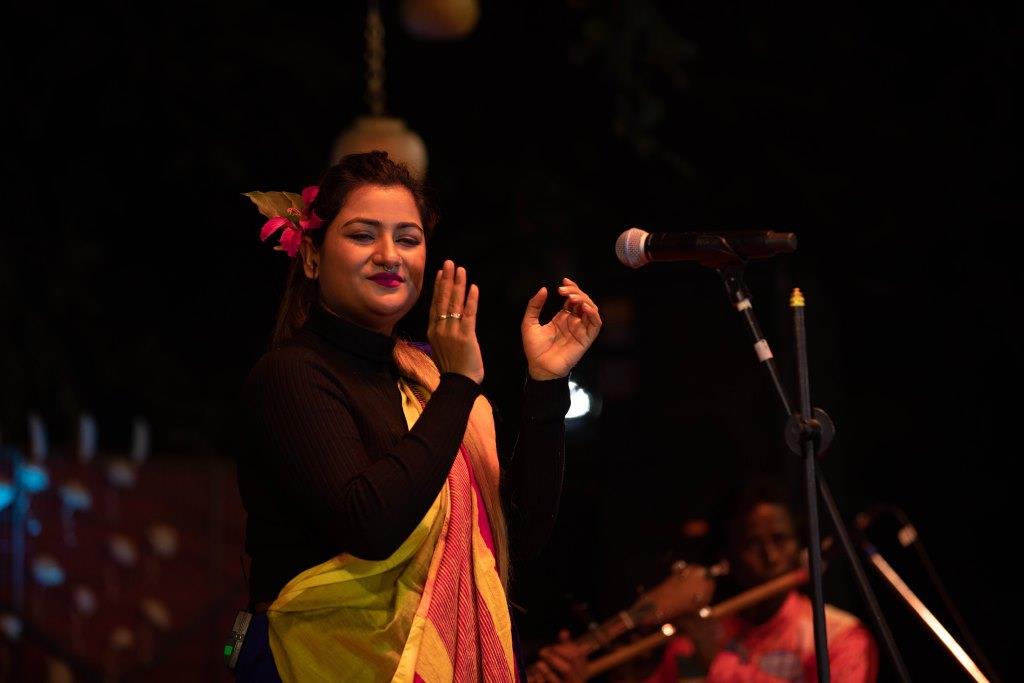
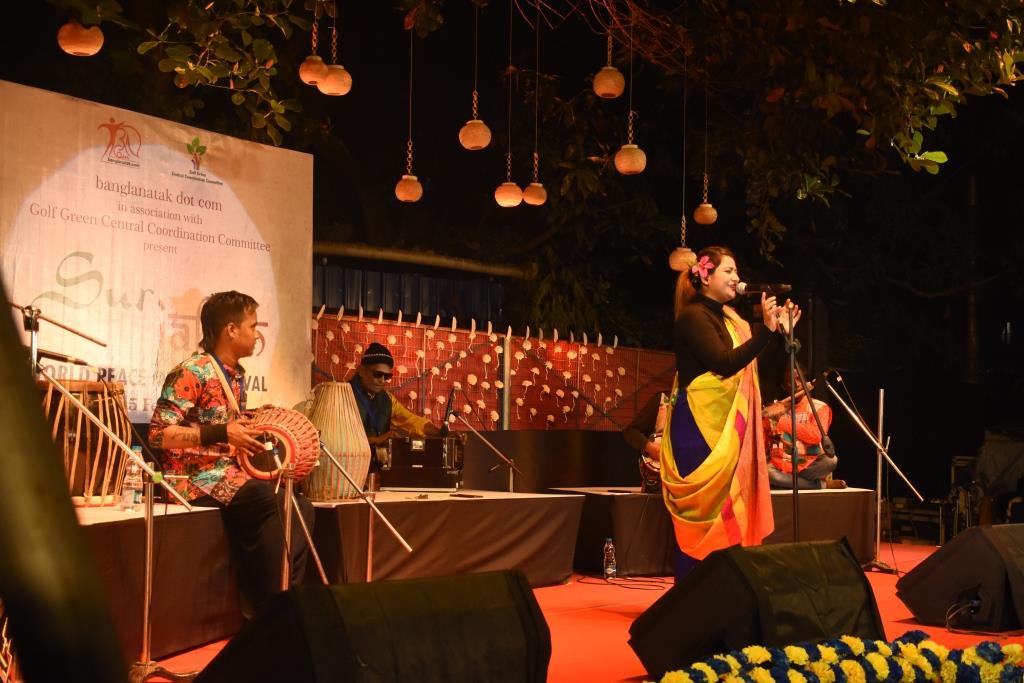
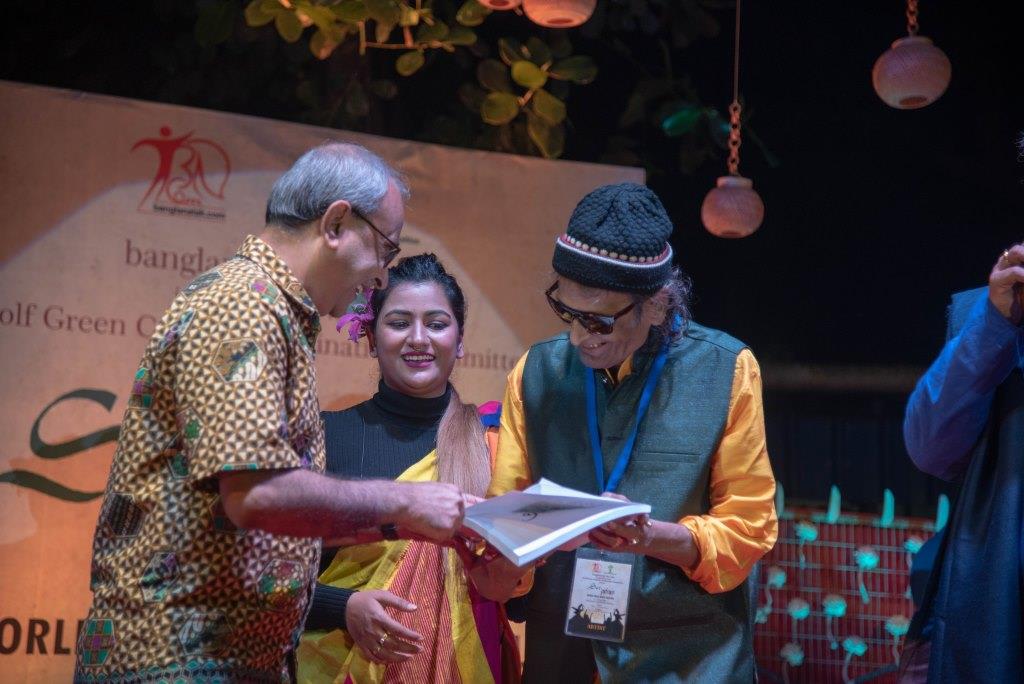
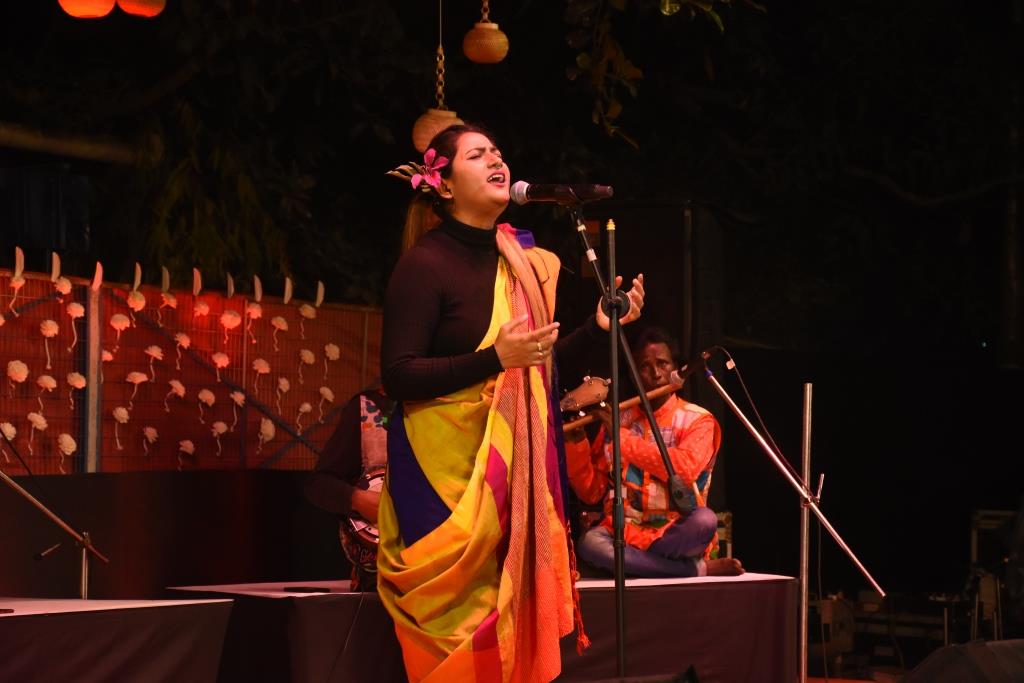
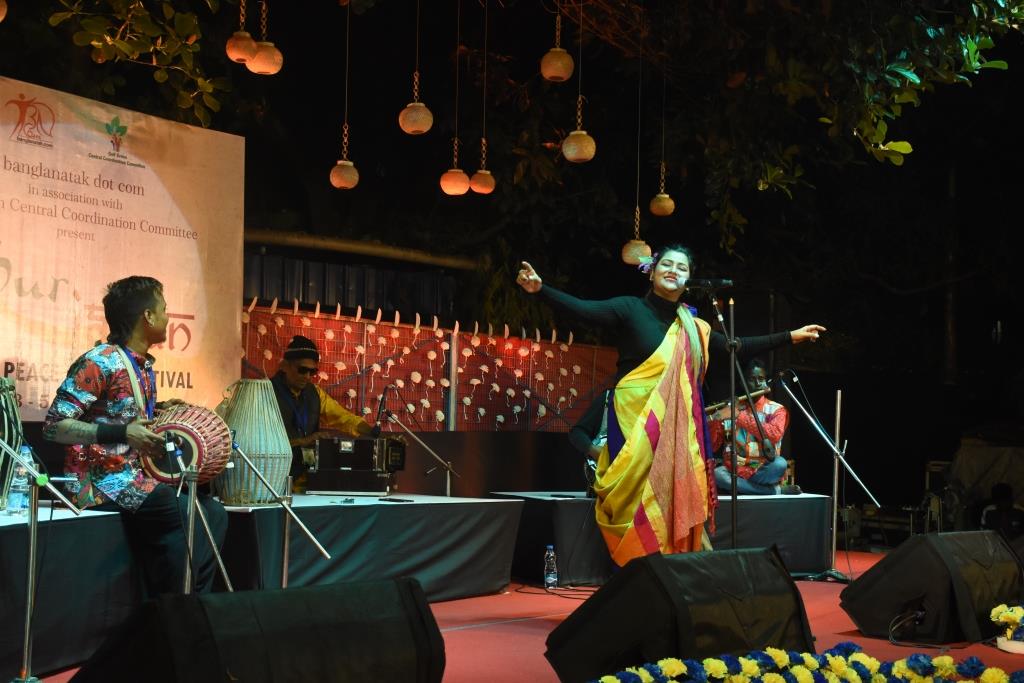

 Leelabali, Saira Banu
Leelabali, Saira Banu
Indian weddings are known for their extravagant, vibrant, gorgeous and over the top celebrations. Another feature of a traditional wedding is that they are multi-tiered, meaning various occasions take place before the actual wedding. To celebrate these multiple occasions like haldi, mehendi, sangeet etc, it is a custom for the women of the family to celebrate it through different songs and music. But with time and influence of the modern portrayal of weddings through cinema, the traditional wedding songs faded away. Saira Banu, a known singer from Murshidabad, resident of Chua Village in Hariharpara, preserved traditional wedding songs. She has been teaching this to young girls and women and passing the tradition of performing these marriage songs. The songs cover the emotions connected with the wedding like teasing the bride, welcoming the groom and bidding farewell to the daughter of the house.
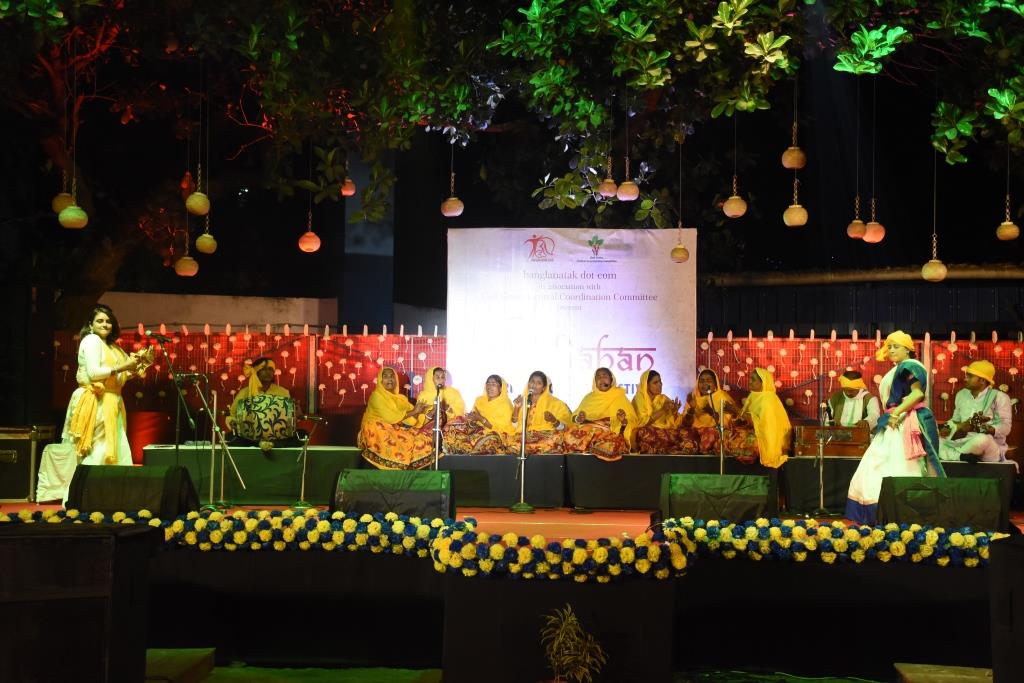
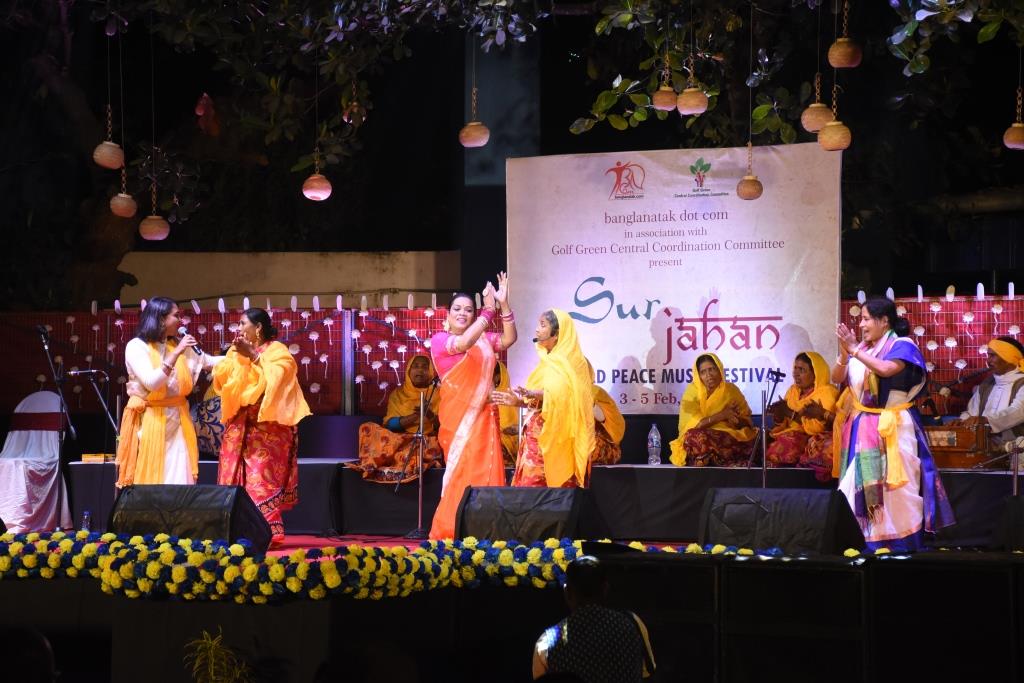
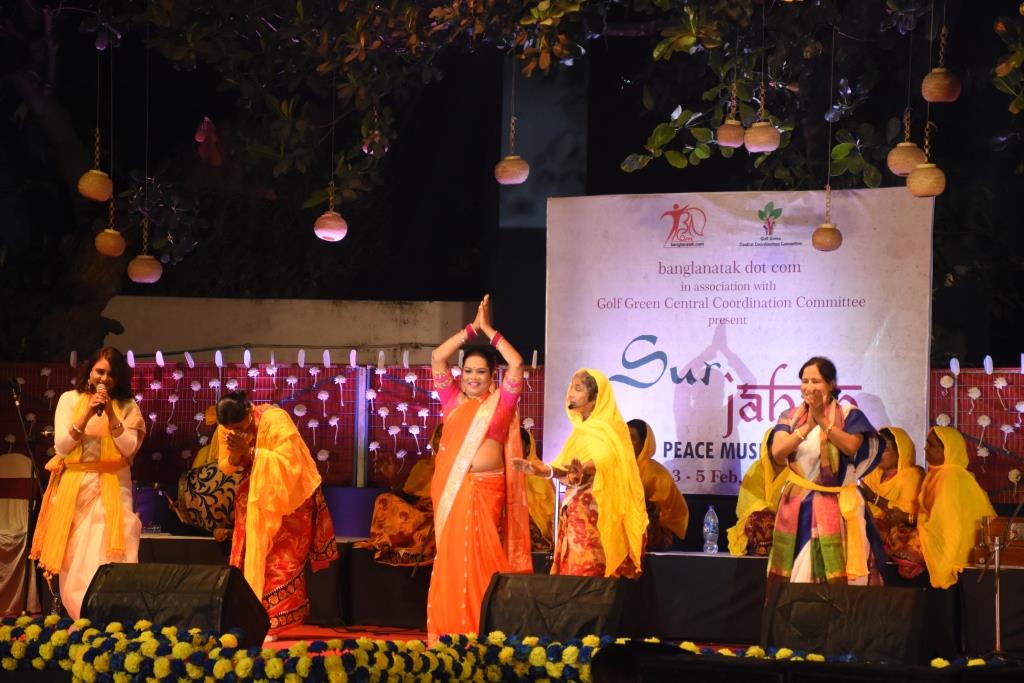
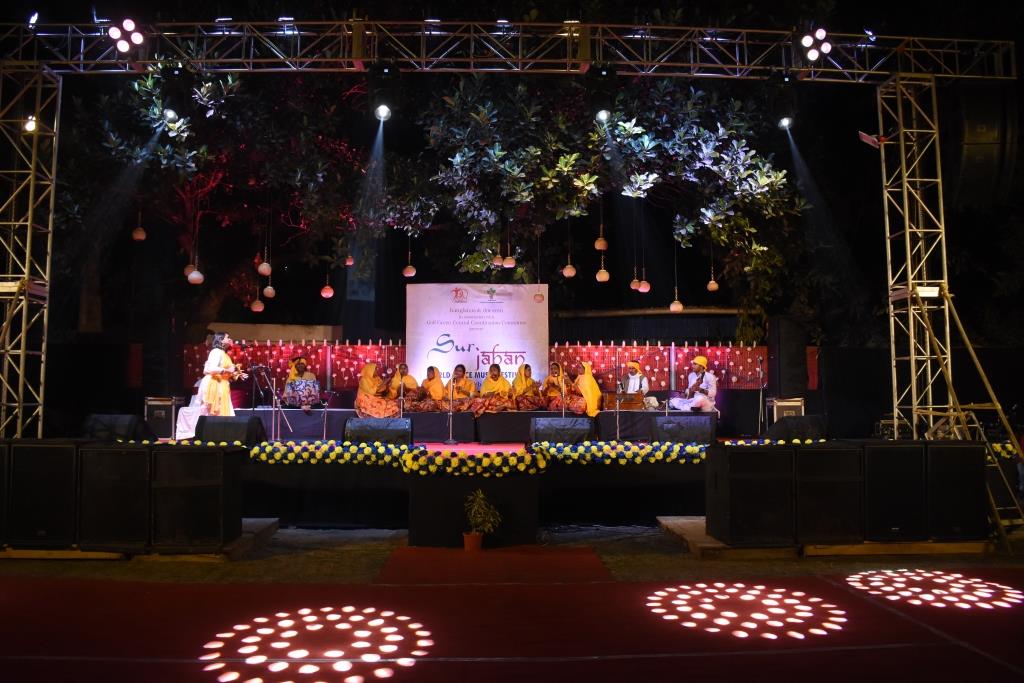
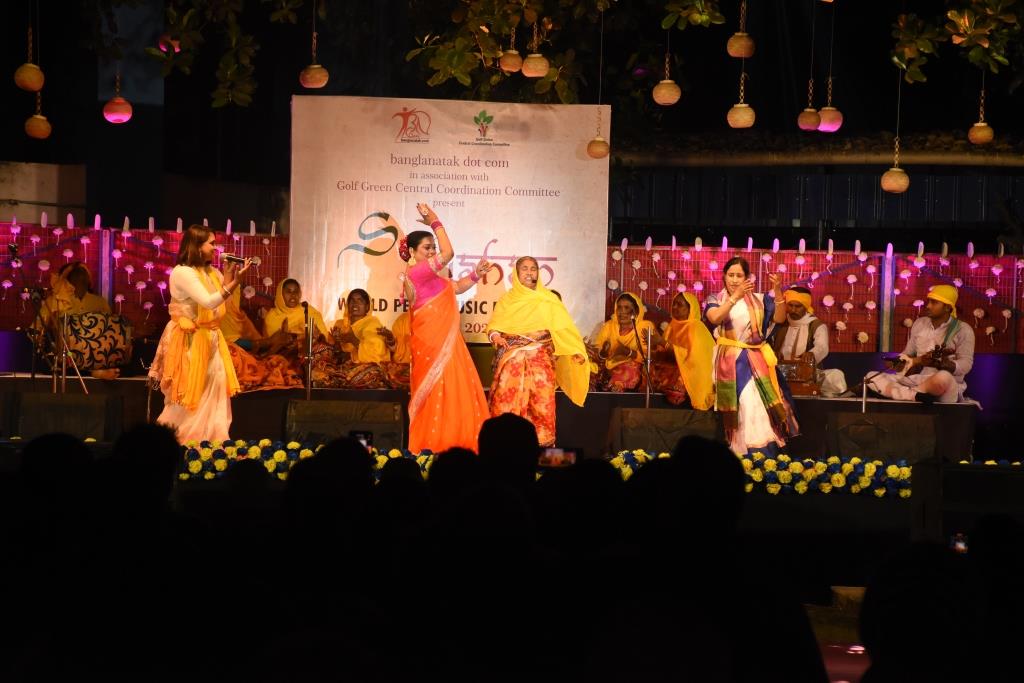
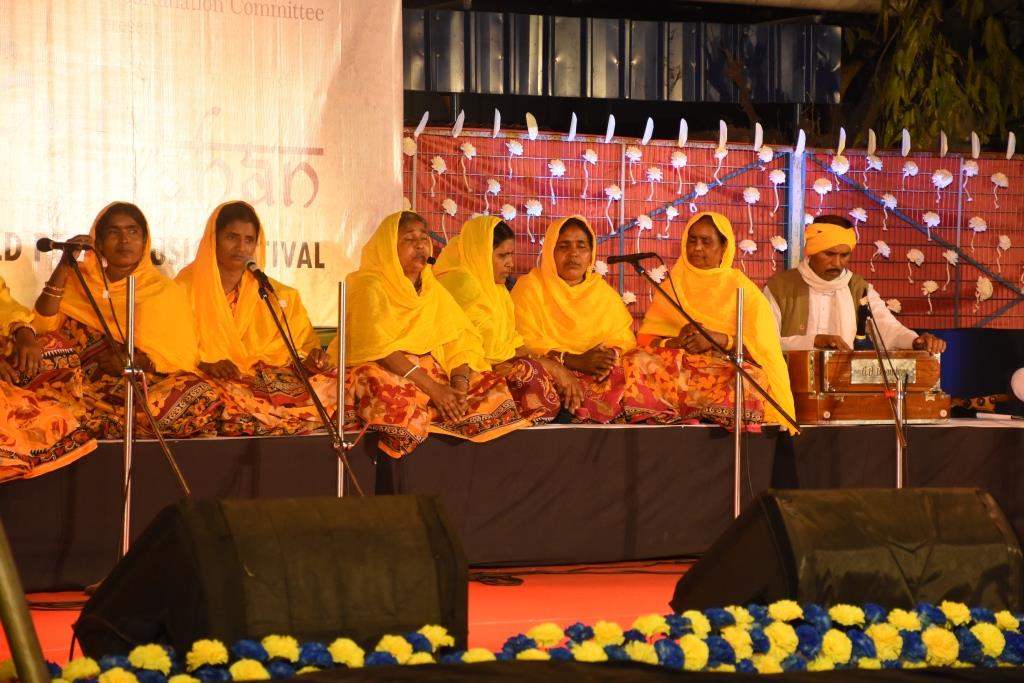
Qawwals of Jalangi, Chhote Golam 
Bangla Qawwali, a variant of Baul Fakiri music, is a genre which is majorly influenced by Sufism. A resident of Jalangi in Murshidabad, Chote Golam is one of the most talented and popular Bangla Qawwali singer. He was initially trained by his father Fakir Alimuddin Mondal. Subsequently, he was introduced to Bangla Qawwali by his Guru Abdur Rashid Sarkar of Bangladesh. Chhote Golam and his team have performed across India, including New Delhi, Goa and Bangalore. Chhote Golam has also performed internationally.
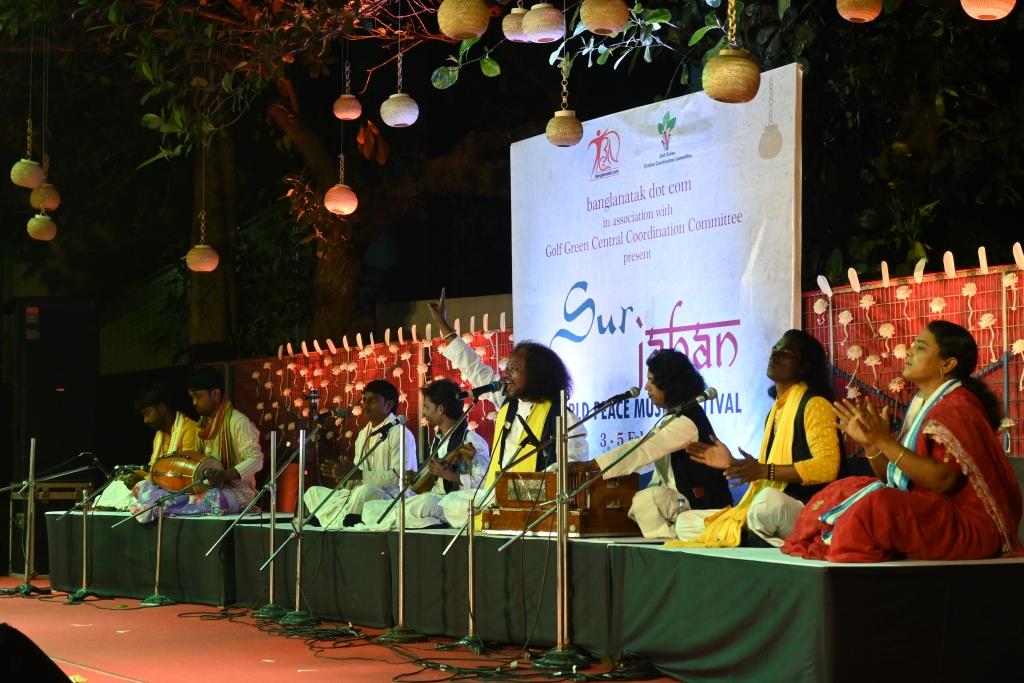
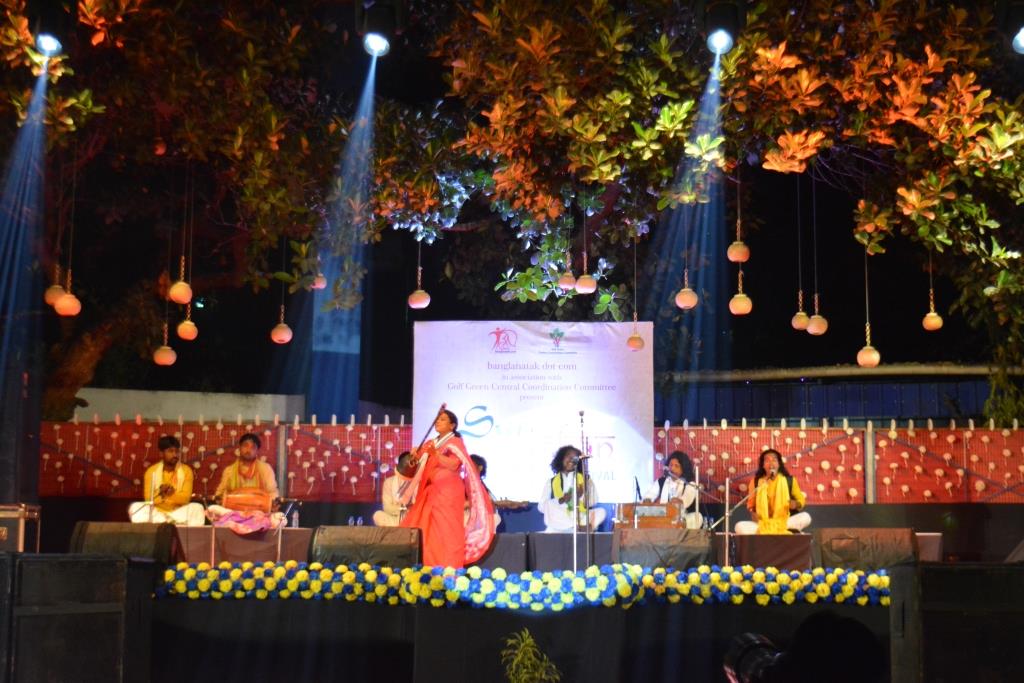
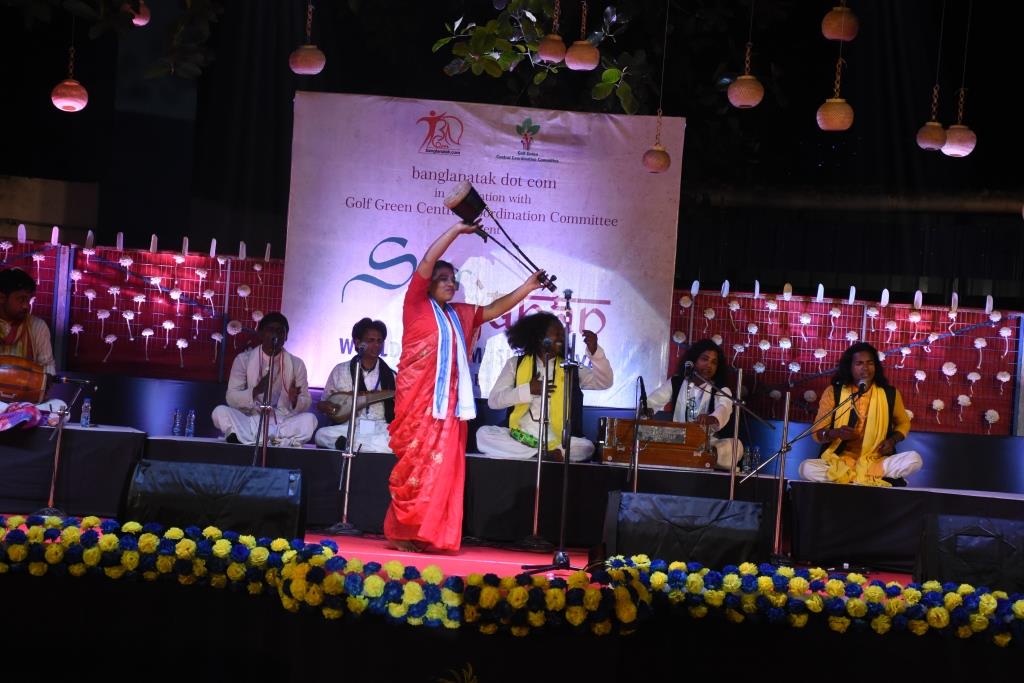
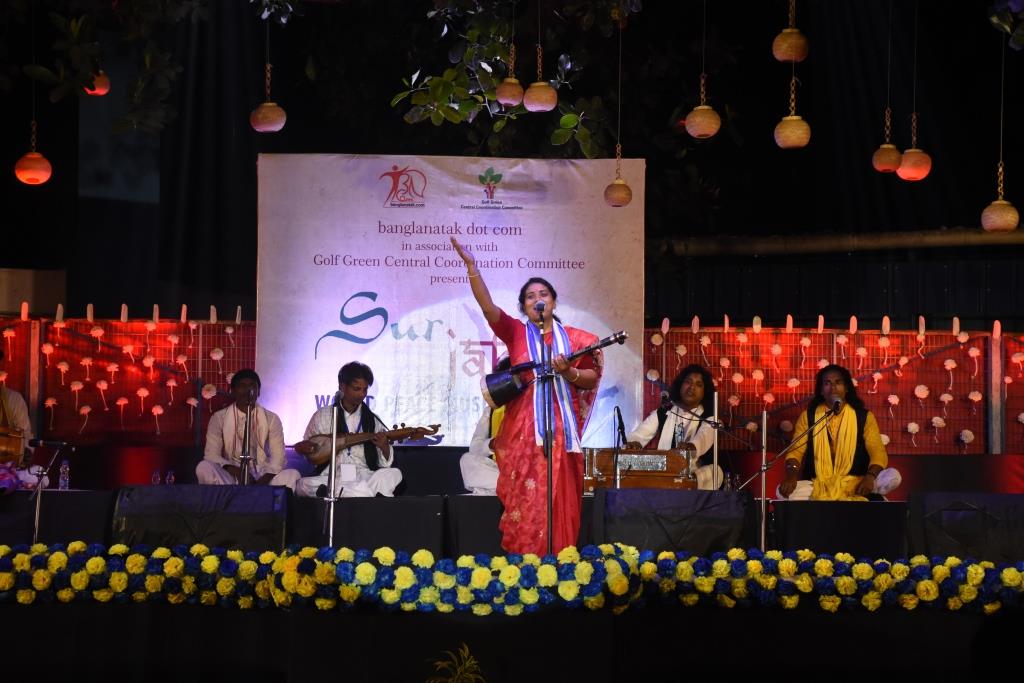
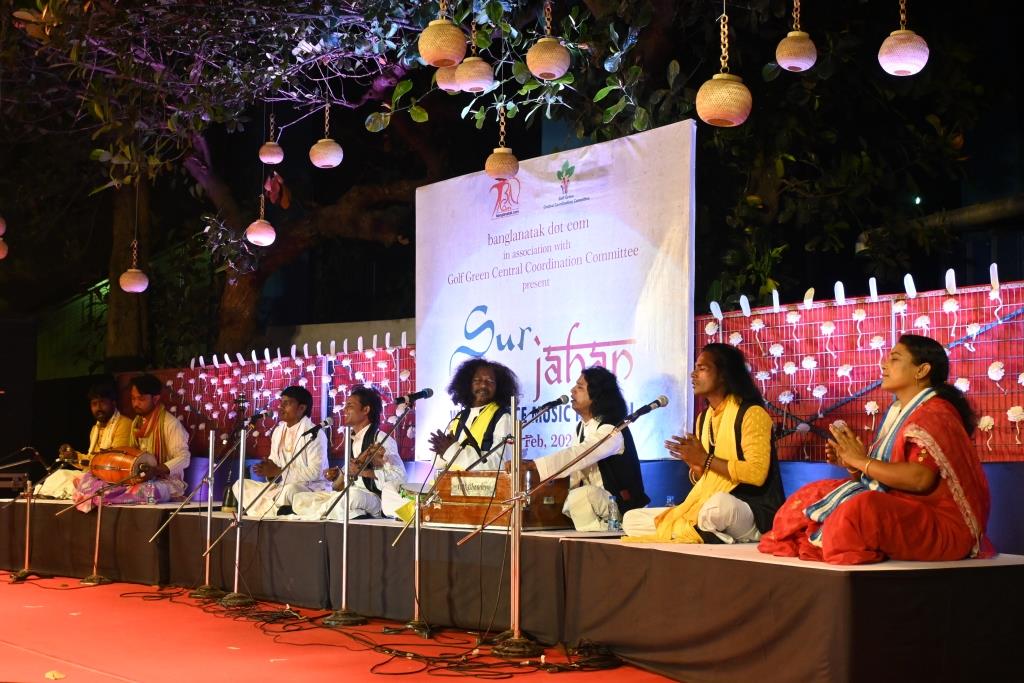
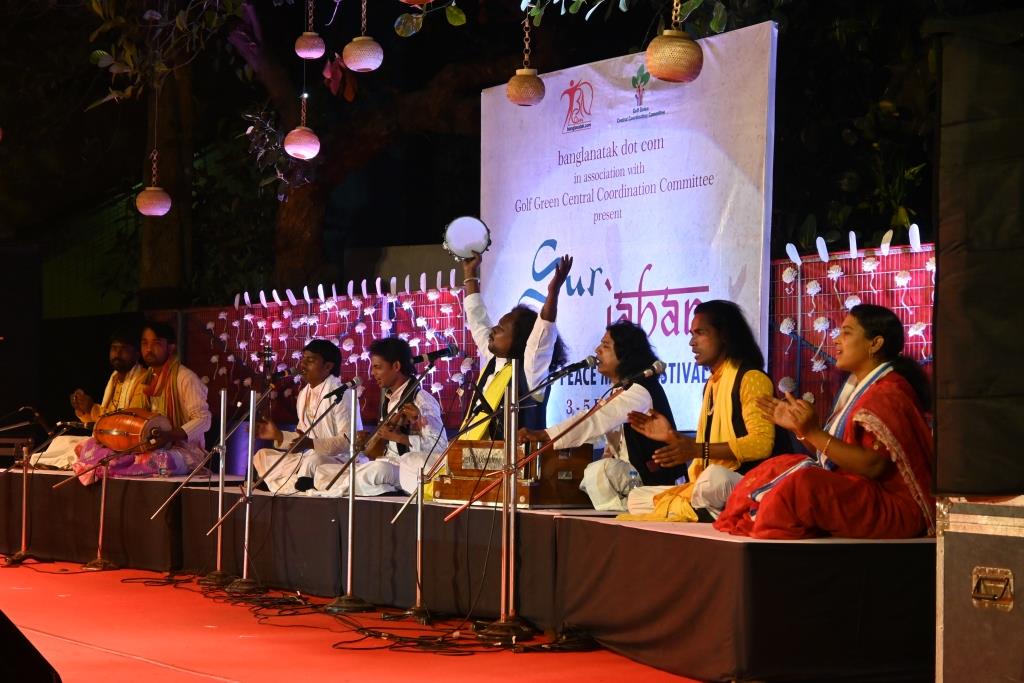
 Folks of Bengal
Folks of Bengal
Folks of Bengal is an initiative of banglanatak dot com MusiCal for promoting the folk traditions of Bengal through linking the urban folk singers/ musicians to the rural traditional masters. The ensemble of the eminent traditional folk singers and musicians of Kolkata takes the audience on a journey through the traditional music stream of Bengal in experimental soundscape using traditional folk instruments, celebrating the diversity and richness of Bengal's folk culture. Along with traditional folk songs, the group will present original compositions. The ensemble consists of Dipannita Acharya, Debalina Bhowmick, Joysankar Choudhury, Pranesh Som, Deepmoy Das and Subhadeep Guha in Vocals; Tarun Chaudhury & Subhrakamal Chattopadhyay in Flute; Sandip Ganguly (Piu) in leather percussion, Tanmoy Pan in percussion and Arpan Thakur Chakraborty in Dotara & other string instruments.
